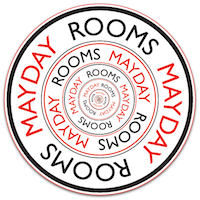Collections
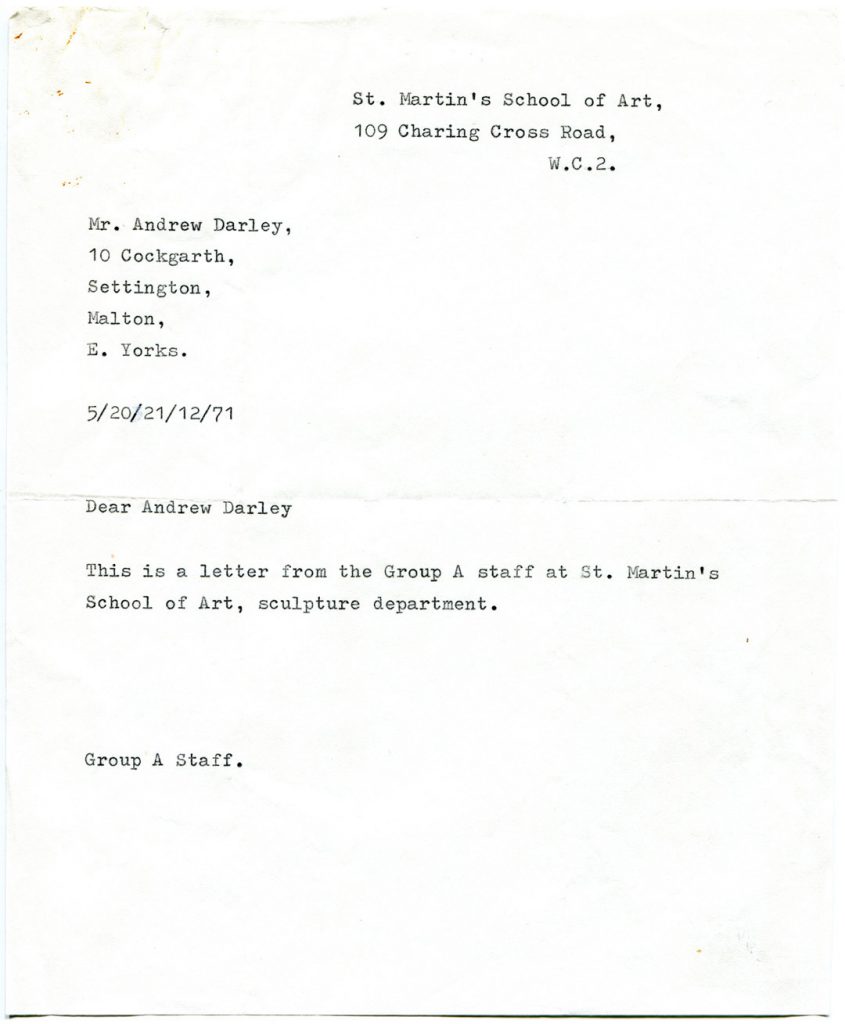
‘A’ Course
In the late spring of 1969 four members of the teaching staff in the Sculpture Department at St. Martins School of Art in London began work on a project for students who would be entering the new three-year degree programme in the autumn. Their unique pedagogic experiment, which came to be known as the ‘A’ Course, was an extraordinary and inventive teaching programme that had a significant impact on what was taking place in British art education at the time. Because of its highly unorthodox nature the ‘A’ Course was widely known and largely misunderstood; it would not be unfair to say it was notorious. As part of a process of re-activating the past and involving original participants, MayDay Rooms has been in contact with former ‘A’ Course tutors/staff Garth Evans, Gareth Jones and Peter Kardia and students who have kindly participated, donated and loaned material. This ongoing ‘A’ Course Collection also opens onto other, less well known avenues taken by ‘A’ Course students in the 1970s including the Manydeed Group and the Poster Film Collective.
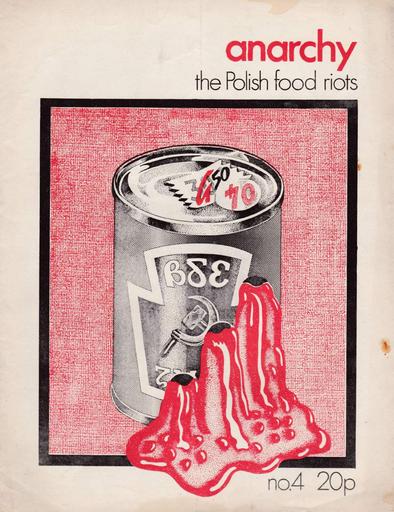
56a Duplicates
A range of newspapers, pamphlets, and magazines have come to us from the 56a duplicates collection, including a set of picket sheets from the Wapping Dispute, and rare issues of Monochrome newspaper. We have also received materials that will be added to existing collections, including 25 copies of ‘Anarchy’ from the 1960s.
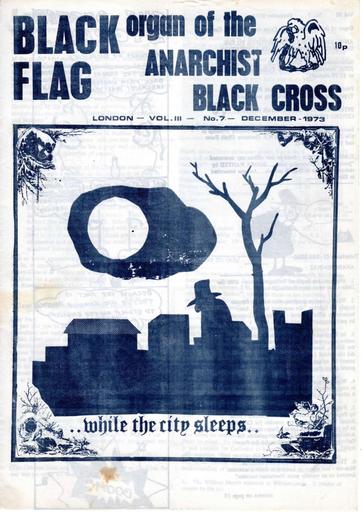
Anarchist Ephemera
Not being centred upon political parties or trade union bureaucracies, which often had their own publishing infrastructures, the anarchist scene was, to a larger degree, concerned with independent publishing. The collection here, gathered from various sources, is indicative of both the local community-based nature of anarchist politics as well as the need to disseminate anarchist ideas and histories.
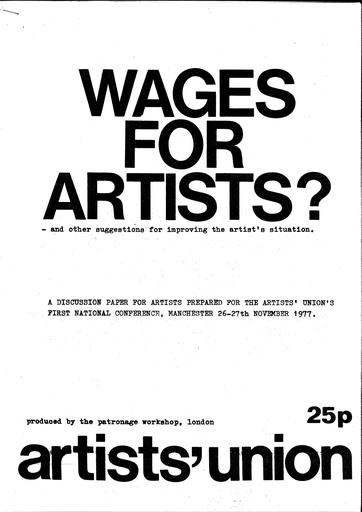
Artists Union
As part of the Unionising Workshop held at Flaxman Lodge in June 2004 a collection of materials (newsletters, leaflets, letters etc.) relating to the Artist Union (1972-1984) was gathered by Jakob Jakobsen and Anthony Davies. The Artist Union was set up to promote the role of artists in society as a force for social change (‘Art is Work’) and developed several work groups including a Women’s Workshop and an Artists in Education Workshop. The first chair of the AU was artist Mary Kelly along with Gustav Metzger as vice-chair. An initial plan to be affiliated to the TUC was later rejected. In 1974 a proposal was made to reform the Arts Council and by 1977 the AU had launched the discussion paper Wages for Artists? Thanks to Anthony Davies for depositing these materials which comprise of original material and photocopies. A small collection of photocopies documenting the NYC Art Workers Coalition (1969) can also be consulted here.
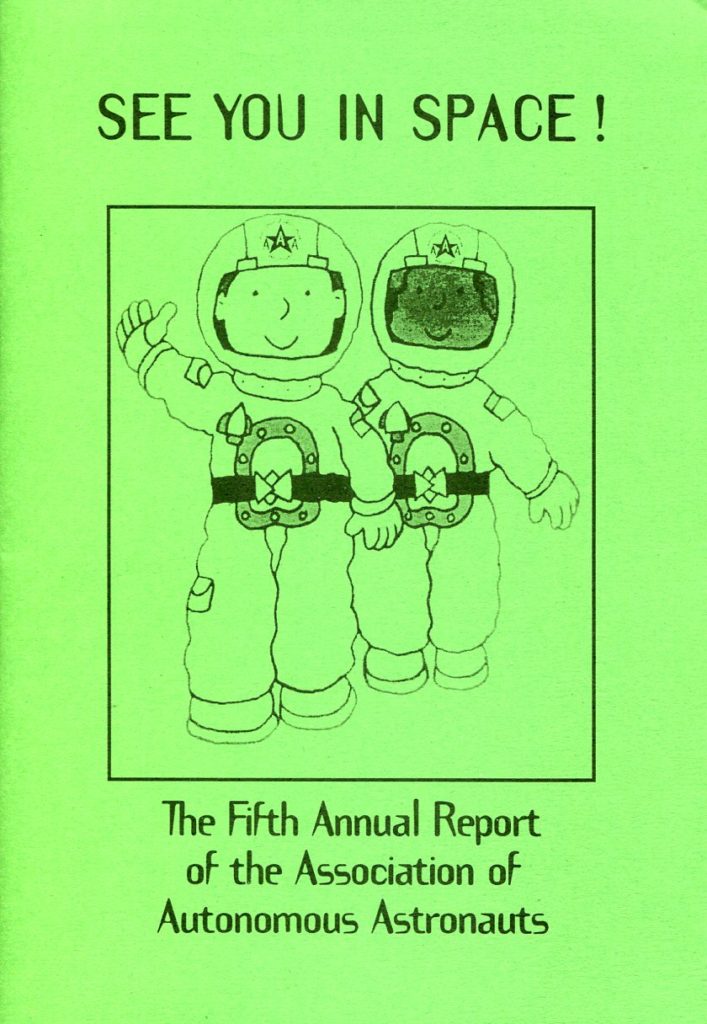
Association of Autonomous Astronauts
Variously seen as a Situationist-inspired prank, an extended metaphor, a form of Exodus and a campaign to redistribute superwealth, the Association of Autonomous Astronauts conducted a five year propaganda mission (1995-2000) to make the experience of space travel an option for a variety of international communities. This collection is comprised of Annual reports, zines, flyers, calling cards, conference programmes and press clippings. Thanks to Fabian Tompsett and John Eden.
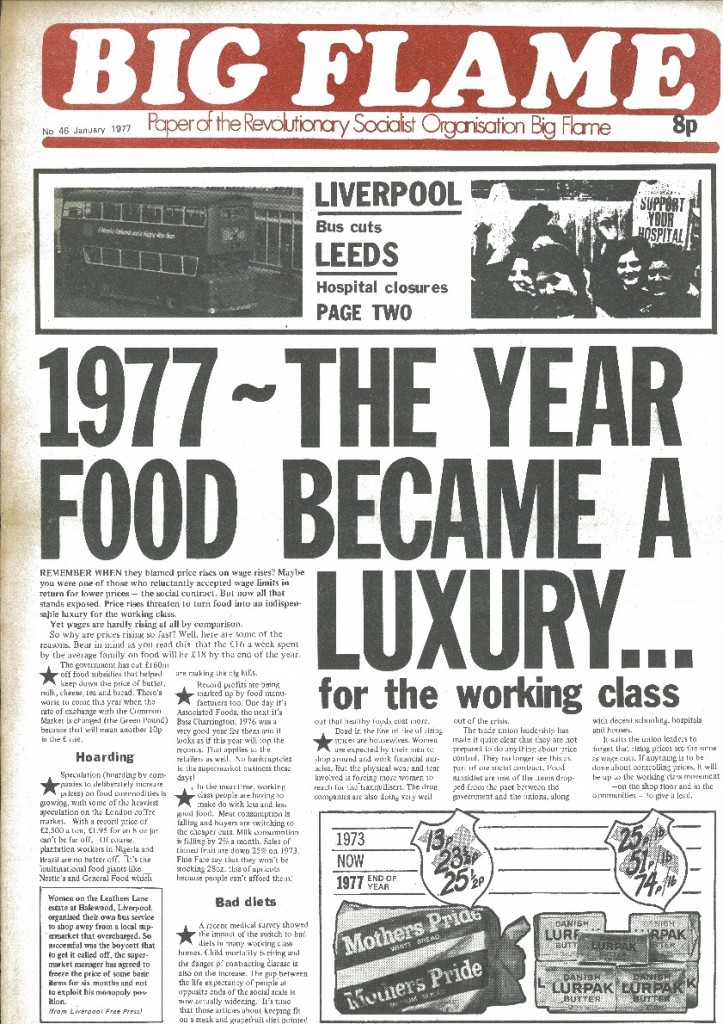
Big Flame
Named after a play by Liverpudlian writer, Jim Allen, Big Flame started out in the early 70s as a rank and file newspaper that gradually developed into a revolutionary socialist feminist organisation. It continued to issue a monthly paper and in each edition the following ‘Basic Points’ were reiterated (1) building a political practice based on the mass of the working class, not merely its representative layers (2) combatting reformism (3) ‘the social factory’ (4) class first, party second (5) for the autonomy of each specifically oppressed sector (6) a non-sectarian and non-authoritarian political method.
Big Flame groups were soon established in London, Birmingham, Leeds and Manchester and close links were made with Italian struggles and ideas in the shape of Lotta Continua. Big Flame is, furthermore, notable for its internationalist perspective and for the key role it played in supporting the ‘autonomous movements’ of women, black and gay people. The materials held at MayDay Rooms include copies of the Big Flame newspaper spanning the 70s and a box file of contemporaneous internal documents. We are grateful to Martin Yarnit for depositing these with us.
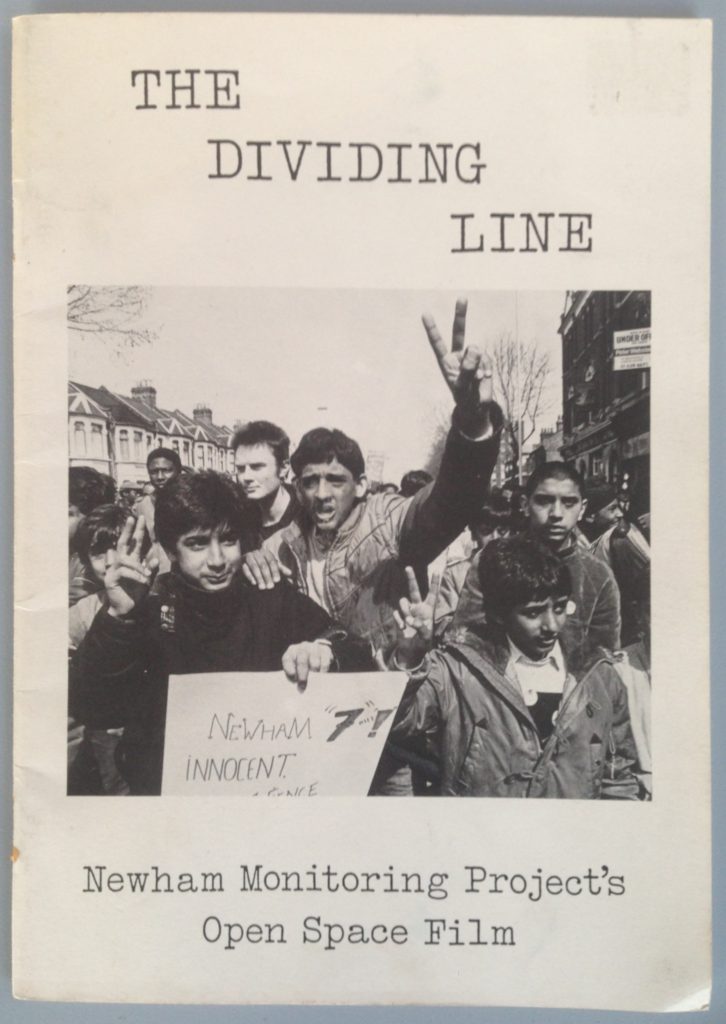
Black Struggle Collections
A modest collection of material relating to Black Struggle in the UK includes copies of Race Today and Race & Class which were both offshoots of a breakaway from the Institute of Race Relations in the early 70s. These have been supplemented by a donation of books from Newham Monitoring Project and documents that MDR is holding on behalf of Statewatch. The materials cross-referenced here include Community Defence Campaign newsletters, Deaths in Custody files, Police Monitoring Groups and cuttings and research into the 1981 Riots.
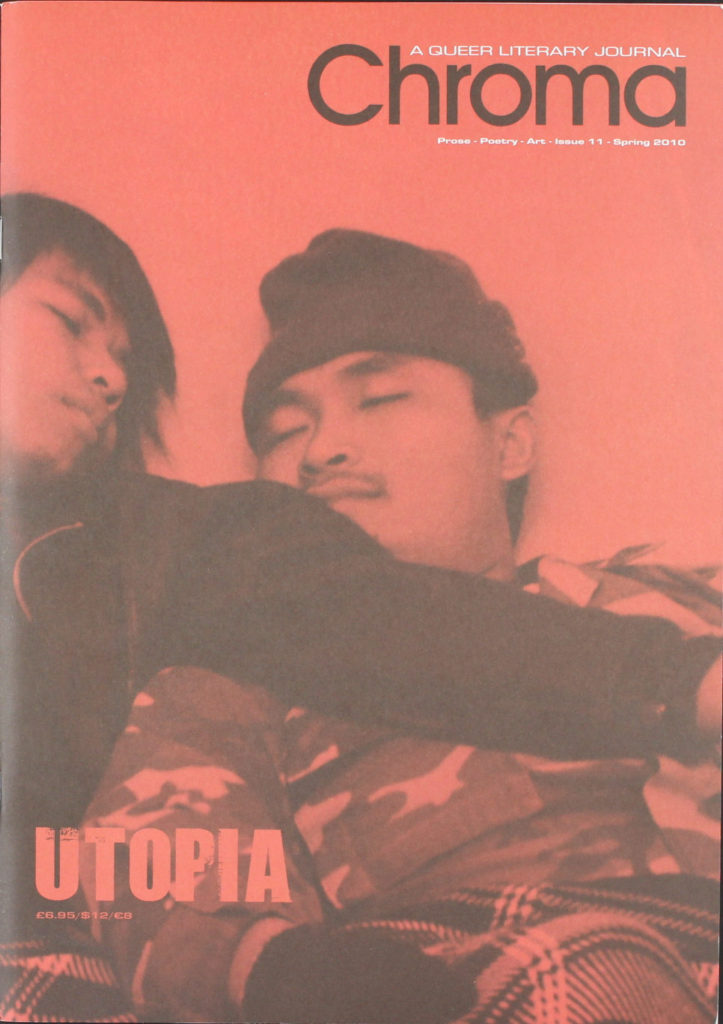
Chroma
Chroma was an queer literary journal that ran between 2004 and 2010, publishing poetry, prose and visual artwork. It’s content included work by over 200 lesbian, gay, bisexual, and transgender authors and artists. A set of copies of the journal, alongside proofs, surrounding materials, and ephemera were deposited at MayDay Rooms by the editor Shaun Levin.
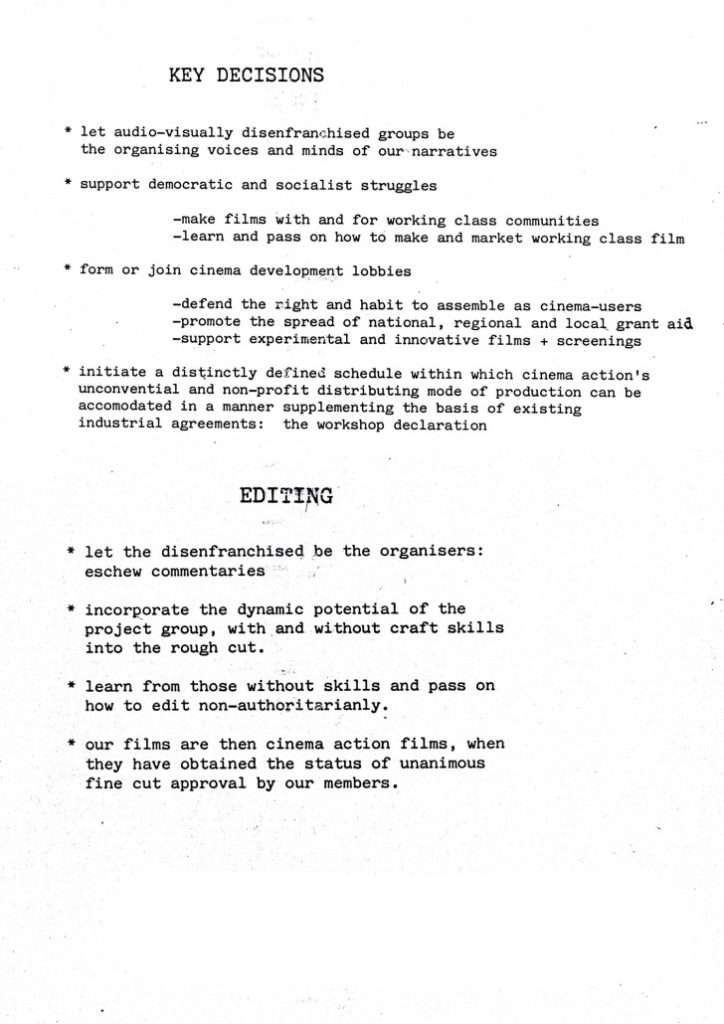
Cinema Action
Cinema Action was among several left-wing film collectives formed in the late sixties. The group started in 1968 by exhibiting in factories a film about the French student riots of that year. These screenings attracted people interested in making film a part of political activism. With a handful of core members – Ann Guedes, Gustav (Schlacke) Lamche and Eduardo Guedes – the group has pursued its collective methods of production and exhibition for nearly twenty-five years.
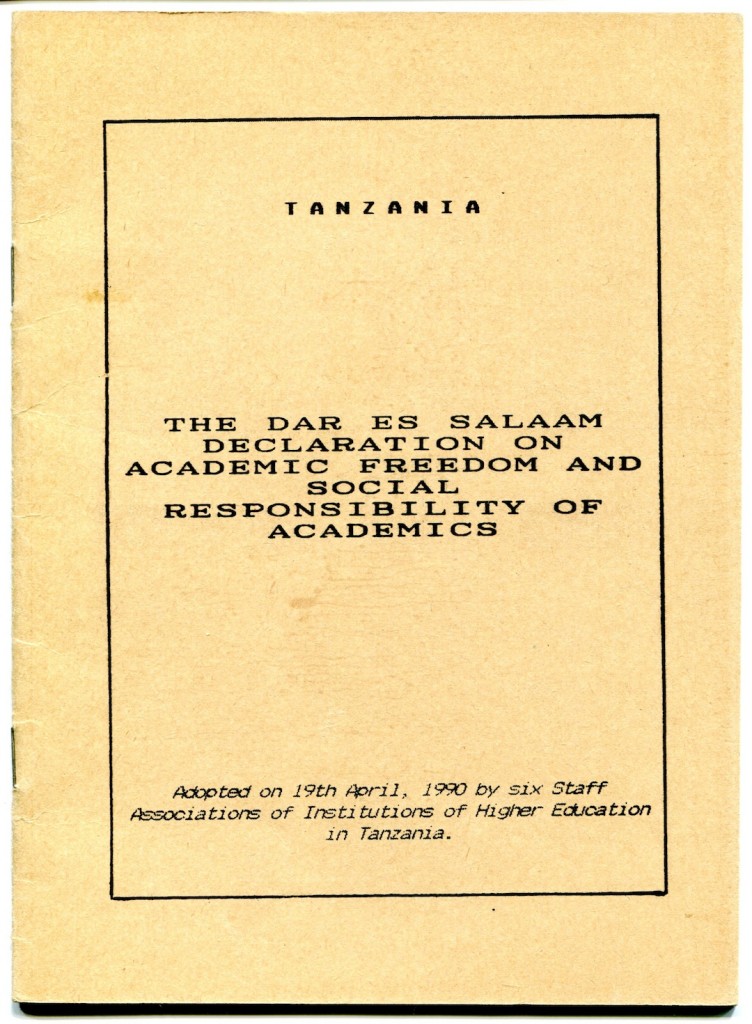
Committee for Academic Freedom in Africa
Established in the Spring of 1991 by George Caffentzis and Silvia Federici, the Committee for Academic Freedom in Africa consisted of “people teaching and studying in North America and Europe who are concerned with the increasing violations of academic freedom that are taking place in African Universities.” Throughout its twelve year history they published a newsletter that featured “action alerts” about student struggles on African campuses and documented the impact of World Bank and IMF policies on African education. Amongst CAFA’s aims was to establish an “action-network” to respond to emergencies and to lobby often quietistic teachers’ unions. The comprehensive archive, lodged with MayDay Rooms by Silvia and George, contains, across three boxes, a full set of newsletters, correspondence, supporting documents, press-clippings from many African countries and a series of articles by writers who contributed to the CAFA project.
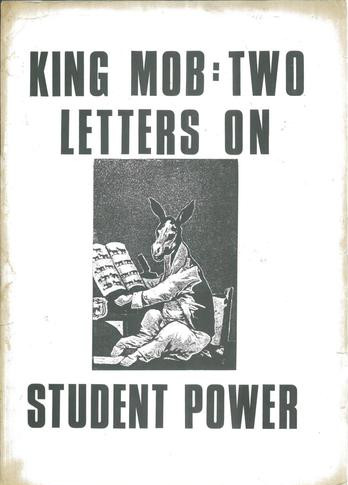
Dissenting Ephemera – Catherine Pozzo di Borgo
A small collection of materials mainly relating to the English situationists, ‘King Mob’, and the LSE occupation in early 1969. The collection includes original prints of King Mob journals, King Mob posters from the LSE occupation, copies of various situationist and anarchist periodicals from the late 1960s, a brochure for the Anti-University, press clippings and internal documents from the student movement including a draft constitution of the RSSF. Alongside a paper collection, Catherine has also contributed a number of photographs of situationist posters. The collection also includes a small number of press clippings and fliers from the Jake Prescott and Ian Purdie defence group.
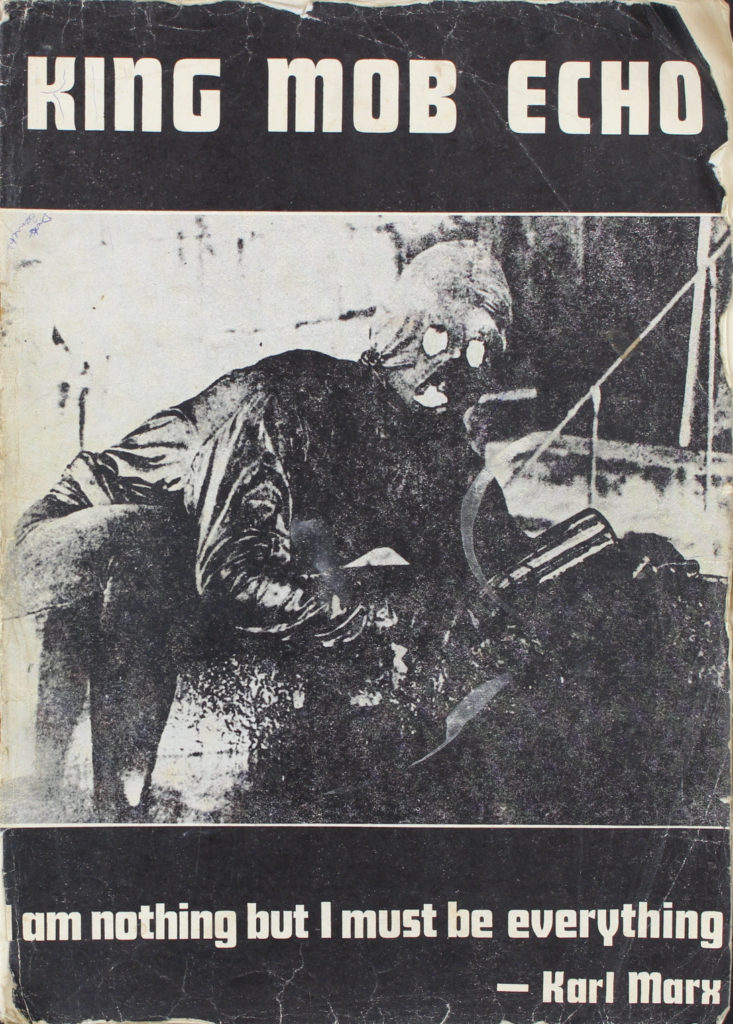
Dissenting Ephemera – Roy Perry
A small collection of anarchist books and pamphlets. These mostly date from the 1960s, including a number of issues of Anarchy. Of particular interest in this collection is the pamphlet ‘The Experience of Poverty and The Poverty of Experience’ by the Bash Street Kids/International Werewolf Conspiracy, who were associated with King Mob, and Ed Dorn and Gordon Brotherstone’s translations of guerilla poems from Latin America, published in 1968.
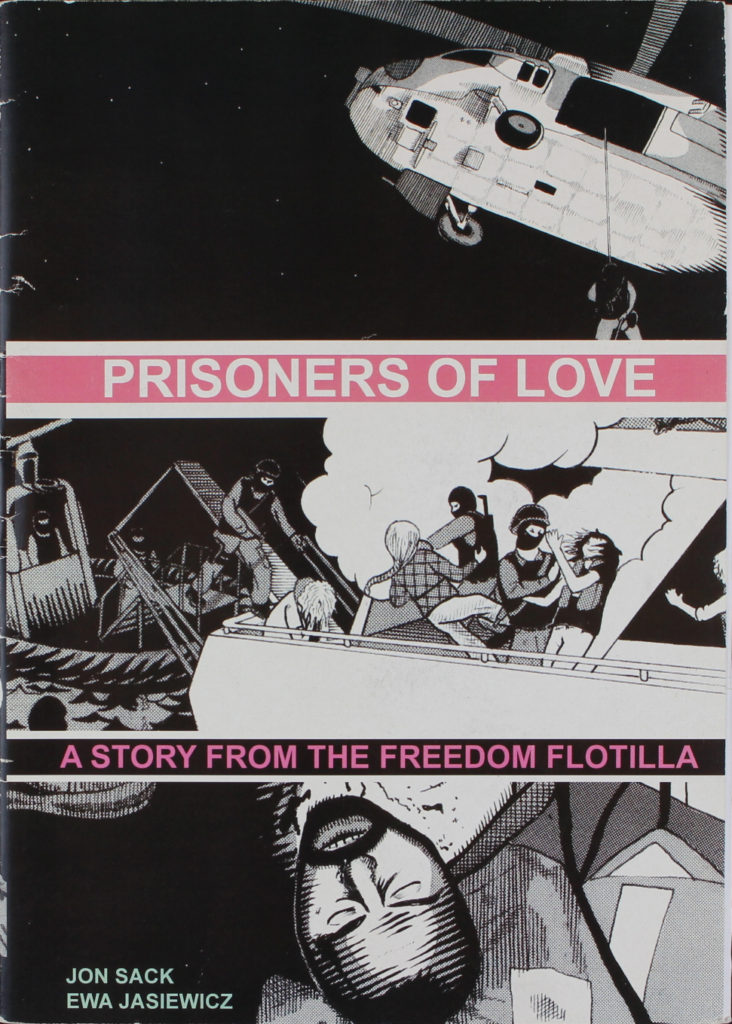
Dissenting Ephemera – Seth Wheeler
Seth Wheeler has deposited two boxes of materials. Some of this collection is personal papers regarding social movements during the cycle of struggles from the late 1990s through the early 2000s. Other parts of the deposit are a personal collection of radical ephemera from the 1960s to the present. Also included in this collection is a box of mid-2000s anarchist and DIY punk zines, on topics ranging from music, to sexual politics, to radical self-care, to communal politics.
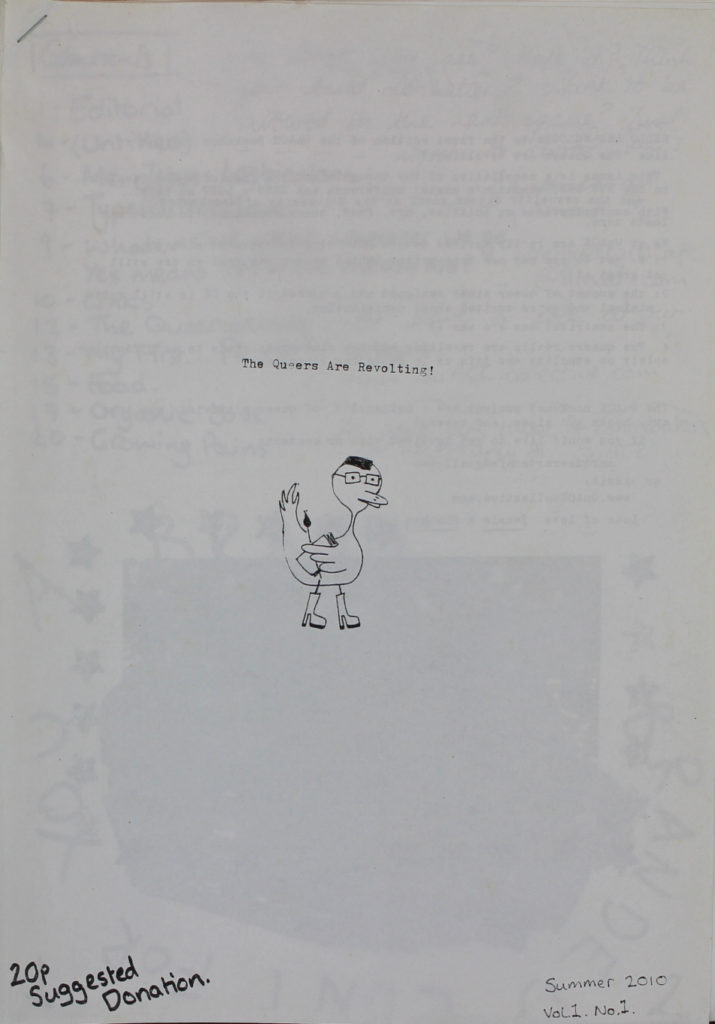
Dissenting Ephemera – Steve Graby
A collection of radical ephemera, including pamphlets and journals. This collection comprises mainly anarchist materials produced the mid-2000s to the mid-2010s. The collection includes issues of the journals Shift Magazine and Turbulence, which contain important theoretical contributions on direct action in Britain, from the height of Climate Camp, through the financial crisis, through to the beginnings of the Student Movement and the anti-austerity protests that followed.
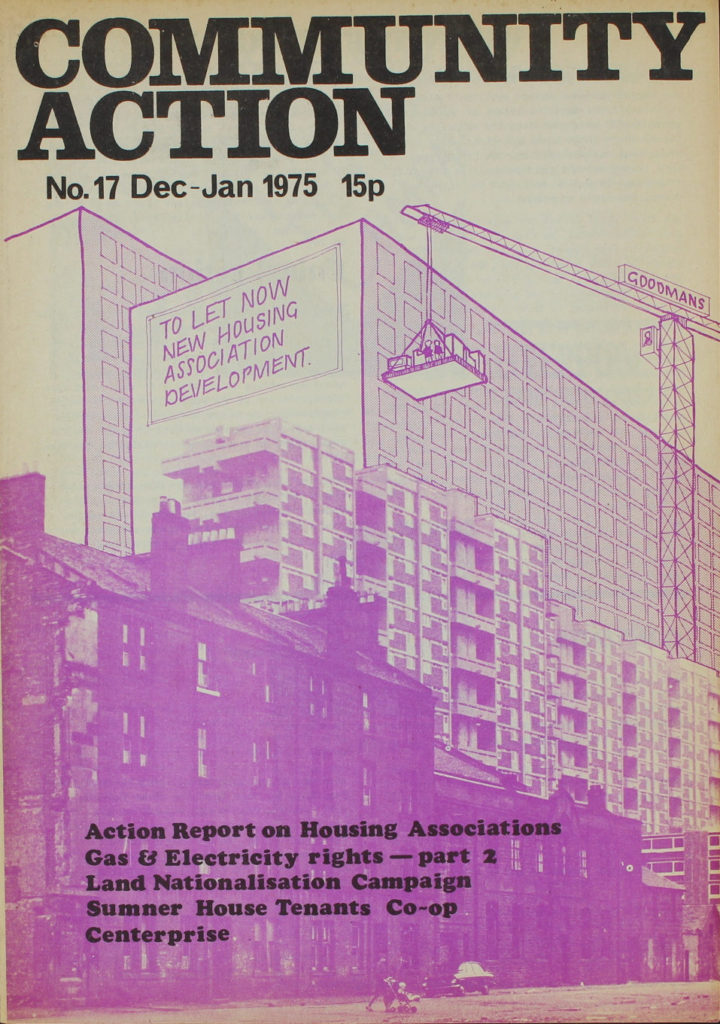
Dissenting Ephemera – Tom Woolley
A collection of seven boxes of materials, including a large personal collection of documents relating to the student movement between 1968 and 1970 both in the UK and across Europe, including ephemera, publications, as well as personal correspondence and manuscripts. The collection also includes a complete run of Community Action magazine, from the 1970s, which deals with radical approaches to housing. A significant part of the collection consists of materials around radical architecture, short-life housing, and squatting during the 1970s and 1980s. These central parts of the collection are supplemented by a range of anarchist, left communist, and radical ephemera and publications, with a particular focus on material produced by Solidarity and adjacent groups.
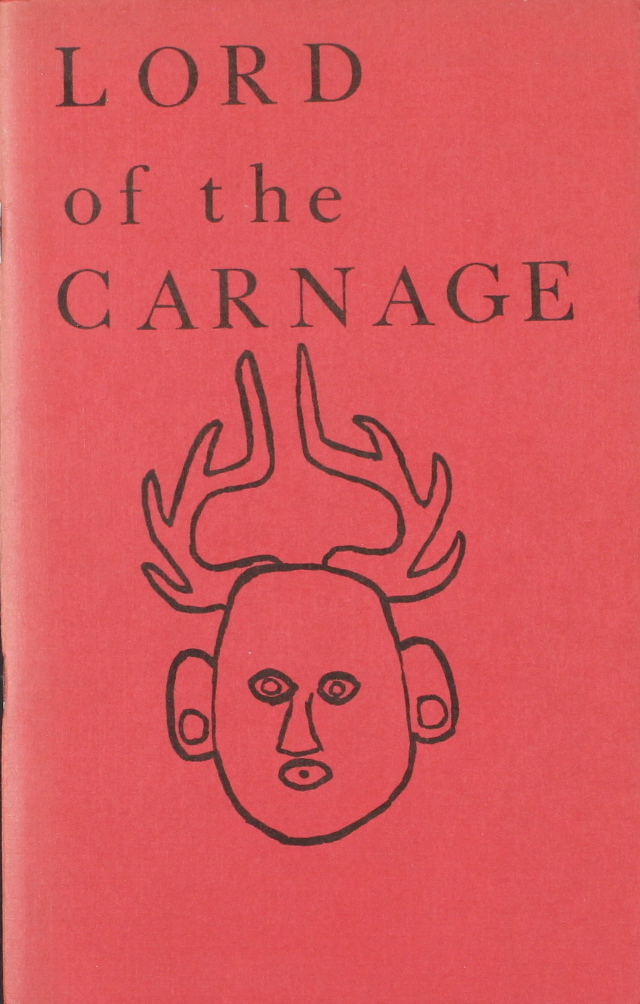
Dissenting Ephemera — Alex Bird
A collection of magazines and pamphlets. These include materials from the 1960s through to the 1990s, and range from communist and anarchist materials, to pamphlets from the left of the Labour Party. Of particular interest in this collection are Welsh materials. This includes a number of pamphlets and poetry chapbooks, and four issues of the magazine ‘Rebecca’, which covered many issues in Welsh radical politics in the mid-1970s. The collection also contains a run of ‘Unioneyes’, the news-sheet of Cardiff Trades Union Council, which Alex edited from the mid-1980s through to the early 1990s. This gives a unique and in depth view of rank and file struggles in the later years of the Thatcher administration, and in the wake of the crushing of the Miners’ Strike.
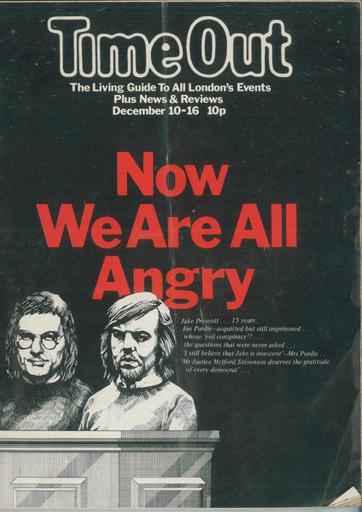
Dissenting Ephemera — Crispin Aubrey
A large number of issues of Time Out, Private Eye, and City Limits – publications on which her late husband Crispin Aubrey worked – from the 1960s through to the early 1980s. These publications sit in our archive alongside a new special collection in the Statewatch Archive, which deals with materials from the ABC official secrets act trial of 1978, in which Crispin Aubrey was a defendant. They also compliment our existing archive of Not Time Out, the publication produced by the striking workers at Time Out in 1980.
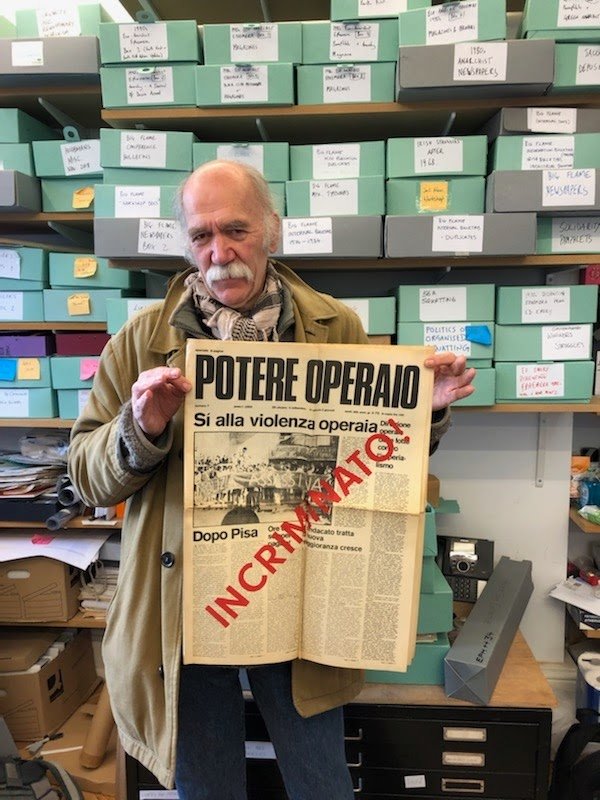
Dissenting Ephemera — Ed Emery
Ed Emery has deposited two large collections in the archive. The first is a collection of agitational ephemera, workers bulletins, news-clippings, and other materials from workers’ struggles at the Ford Motor Company between 1968 and the mid-1980s, with which he was involved as an activist. It is probably the most complete set of documents in the country of these important antagonisms in the automobile industry, giving insights into recent developments in capitalist production, class composition, and industrial action in a time of de-industrialisation from the perspective of workers, strikers, and organisers. The collection, which includes materials from across the UK, focuses heavily on materials produced by workers and agitators at Ford’s Dagenham plant, with most of the material arising from the 1970s. During this time, the strikes at Ford were a leading edge in the battles of the working class, through the oil crisis to the Winter of Discontent. Meanwhile, these local struggles were brought into relation with international workers fighting in the car manufacturing, especially in Italy.
Ed has additionally deposited a large section of his personal archive. The majority of this material consists of translations, especially from workerist and autonomist writings and from Italian radical theatre. The collection contains translations, edited typescripts, layouts, and manuscripts, from figures including Dario Fo, Franca Rame, Antonio Negri, Sergio Bologna, and Ferruccio Gambino. Alongside these translations are a range of original writings, layouts and typescripts from “Red Notes”, children’s stories, a “Songbook of the People of No Property”, as well as documentation of a whole host of other adventures and projects!
This substantial MDR archive sits alongside smaller deposits currently housed at the LSE Library, the Bishopsgate Institute Library and the University Library in Cambridge.
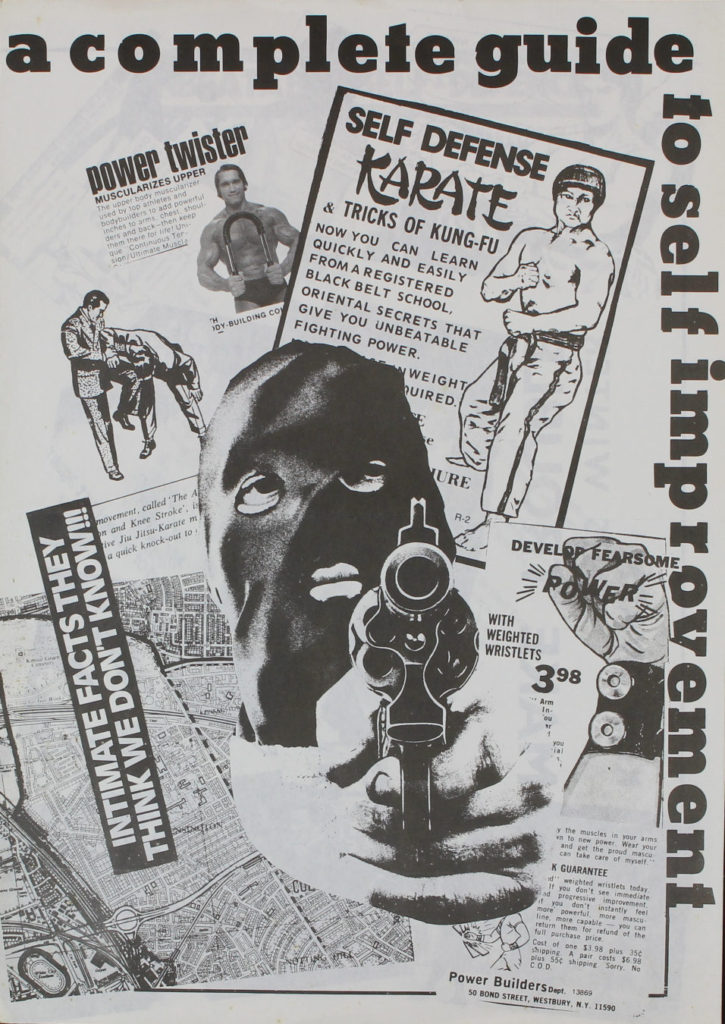
Dissenting Ephemera — Ed Rosen
10 boxes of materials, spanning from the late 1960s through to the late 1980s. This collection includes rare British Situationist ephemera, including a small number of pamphlets printed by Jamie Reid and Sophie Richmond at Suburban Press. The collection includes a number of collected international situationist and pro-situationist publications and recordings, including small press publications and local publications by Leeds based situationist groups. Of special interest are the papers and proceedings from the founding of the Organisation of Revolutionary Anarchists, publications and translations produced by the Wicked Messengers. This collection also contains a large selection of materials council communist, left communist, environmentalist, and anarchist traditions, including many early issues of échanges et mouvement. There are also publications of journals and reports on radical education, Middle Eastern politics, and green politics from the 1970s and 1980s.
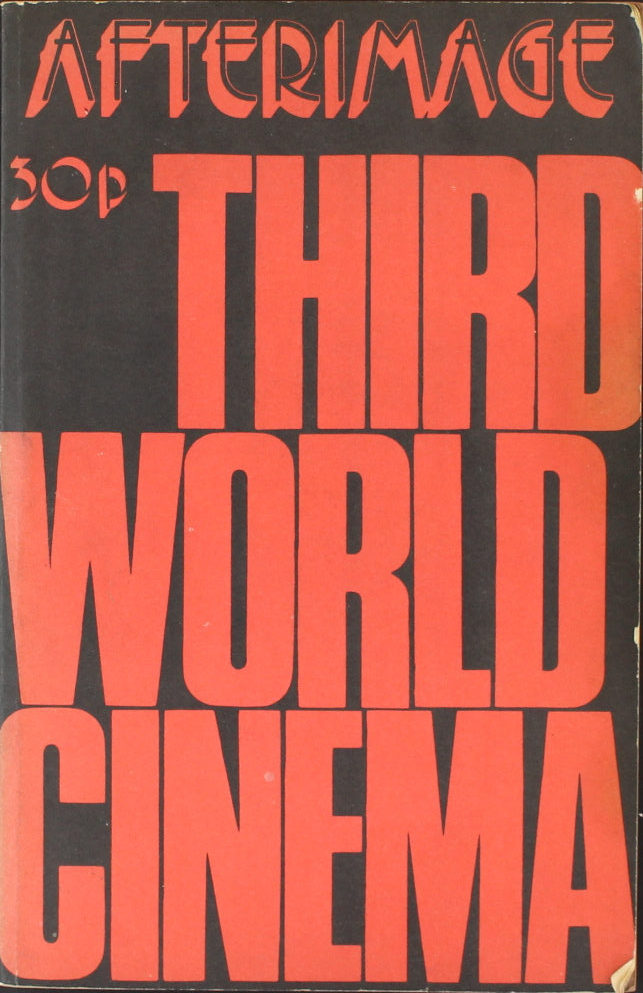
Dissenting Ephemera — Hermione Harris
A complete run of Race and Class, along with other pamphlets produced by the Institute of Race Relations, sit alongside six boxes of ephemera, which range from anti-racist activism (including a good addition to our collection of Race Today issues from the 1970s) and black politics in the 1970s, to film and radical arts journals. The collection also includes a run of European Race Bulletin, and a box of publications and ephemera from the Women’s Liberation Movement.
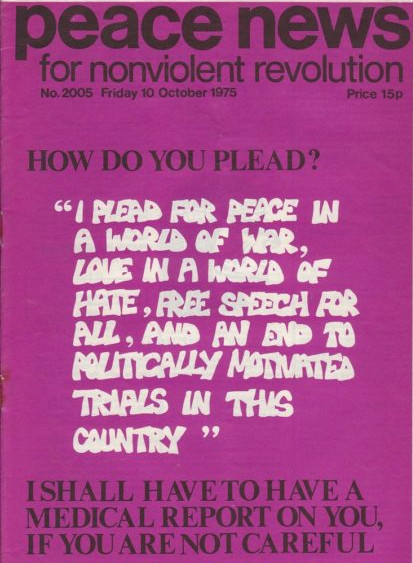
Dissenting Ephemera — Housmans
A large collection of ephemera was donated from the basement of Housmans Bookshop. While this collection remains unsorted at present, it includes a number of newspapers from the 1960s Algerian resistance, anti-Apartheid newspapers from South Africa from the 1980s, and materials from CND and the peace movement from the 1960s to the 1980s.
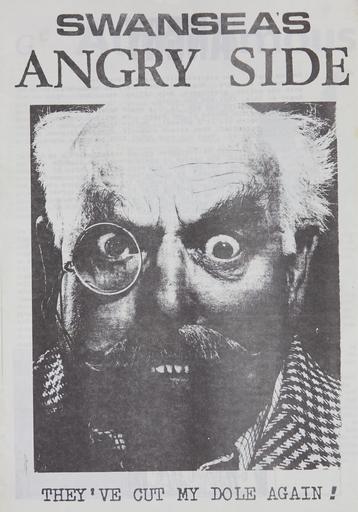
Dissenting Ephemera — Keir Milburn
A box of issues of Solidarity, as well as a number of items from the Swansea section of Solidarity, of which Milburn’s father was a member. The box also contains a number of anarchist pamphlets, zines, and newssheets chiefly from Wales, dating from the 1980s.
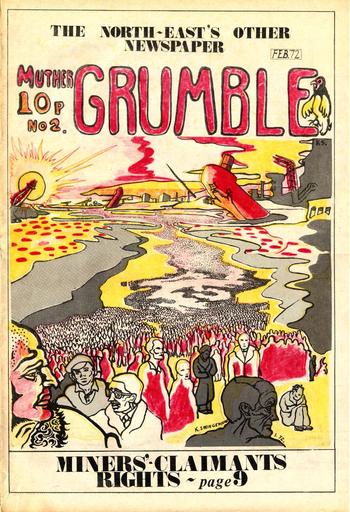
Dissenting Ephemera — Maurice Herson
A collection of 1970s ephemera. This includes an extremely rare short run of the Newcastle alternative paper Muther Grumble from 1971-1972, alongside materials ranging from situationist pamphlets, local ephemera from both Newcastle and London, and a number of peace movement publications and newspapers.
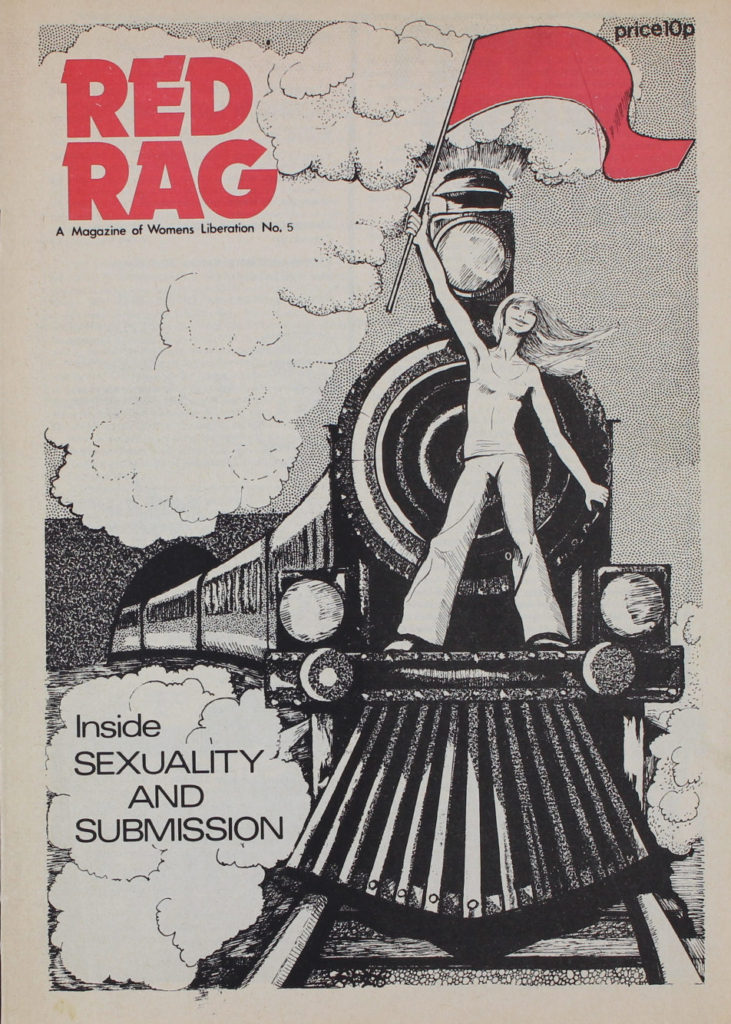
Dissenting Ephemera 1970s – Women’s Movement
These materials, dubbed ‘dissenting ephemera’, were delivered to Mayday Rooms as a contextual backdrop to the October 2014 reunion of East London Big Flame. The close connections this group had to the Women’s Liberation Movement is reflected in the documents, discussion papers, flyers and magazines (Red Rag, Spare Rib) collected here.
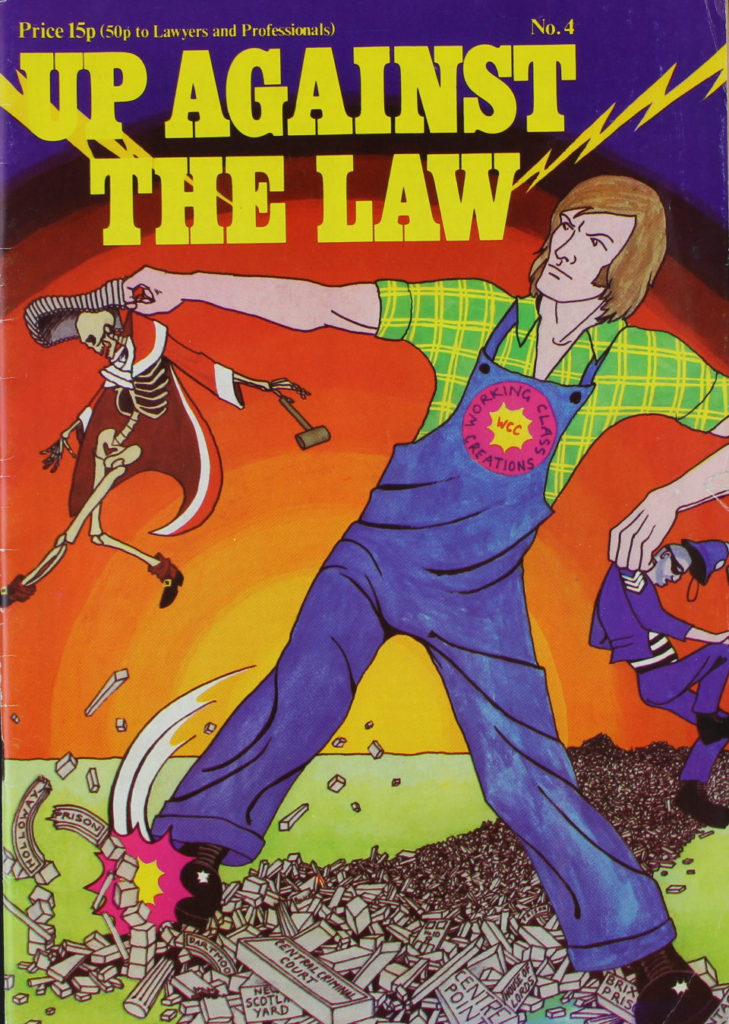
Dissenting Ephemera 1970s — Miscellaneous
These materials, dubbed ‘dissenting ephemera’, were delivered to Mayday Rooms as a contextual backdrop to the October 2014 reunion of East London Big Flame. The range of this groups political concerns are reflected in the independent publications gathered here which cover, amidst others: Anti-Psychiatry (Humpty Dumpty), Black Struggle (Race Today) and Anti-Fascism (SKAN, CARF, Temporary Hoarding).
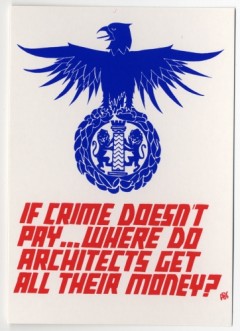
Dissenting Ephemera- Peter Maloney
Two boxes of material around radical architecture predominantly from the 1970s. The documents include materials produced by the Architects Revolutionary Council, as well as campaigning materials about squatting, community campaigns, and resistance to evictions due to redevelopment.
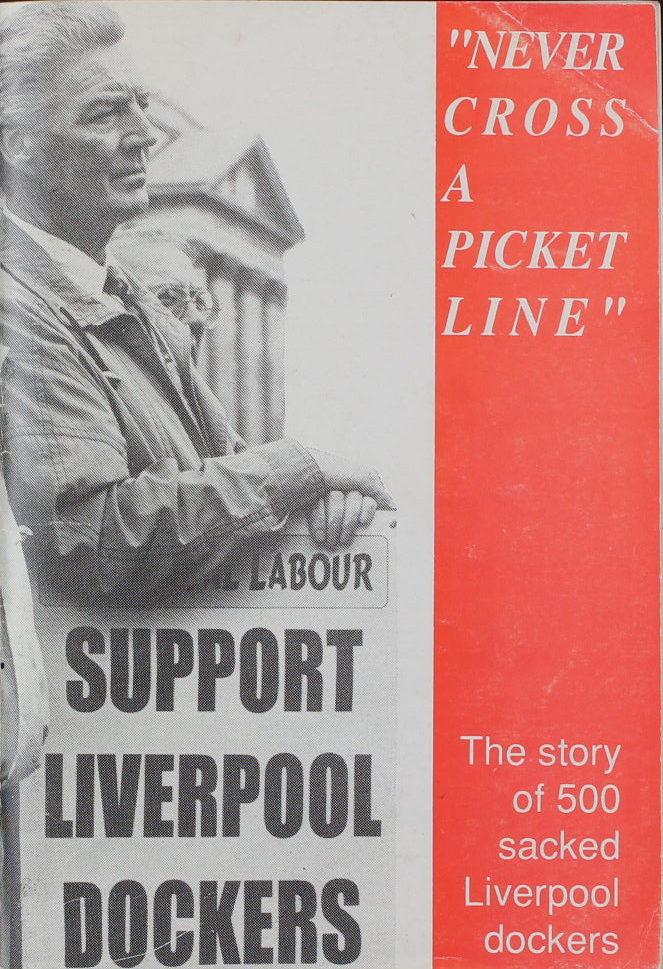
Dockers Charter
One of the longest industrial disputes in working class history, the Liverpool Dockers dispute 1995-98, was a strong indicator that working class organisation and struggle could still exist in the post-Thatcher era of ‘legal’ union gagging. Following the sacking of 80 Dockers employed by Torside, all 329 Dockers employed by the Mersey Docks and Harbour Company refused to cross the picket line and were sacked. MayDay Rooms would like to thank Brian Ashton for copies of the Dockers Charter, a monthly newspaper produced by the Liverpool Docks Shop Stewards’ Committee.

East London Big Flame
Coming together in East London in 1972 this group of left political activists at odds with the moralism of the prevailing left politics of the time embarked on a project of organising themselves non-hierarchically. With an ethos of ‘working with’ rather than being party affiliated and concerned with recruitment, the members of East London Big Flame (ELBF), under the burgeoning influence of the Women’s Liberation Movement and the ‘politics of everyday life’, initiated a series of projects in the Bow area of London. These initiatives included setting up a food co-op and a claimants union, contributing to the East End squatting scene, working and organising within the Ford plant at Dagenham and the Lesney factory in Homerton and establishing the ‘leaderless’ Red Therapy Group. The wide political remit of this group is reflected in the range of material held at MayDay Rooms: from countering media bias and the publication of a TV Handbook to the autonomous struggle of women reflected in reports of conferences and local critical agitation. These original documents (which have been scanned in their entirety for the ELBF website) are supplemented by the reflections and personal stories of some former ELBF members. These materials were entrusted to MayDay Rooms by former members of East London Big Flame.
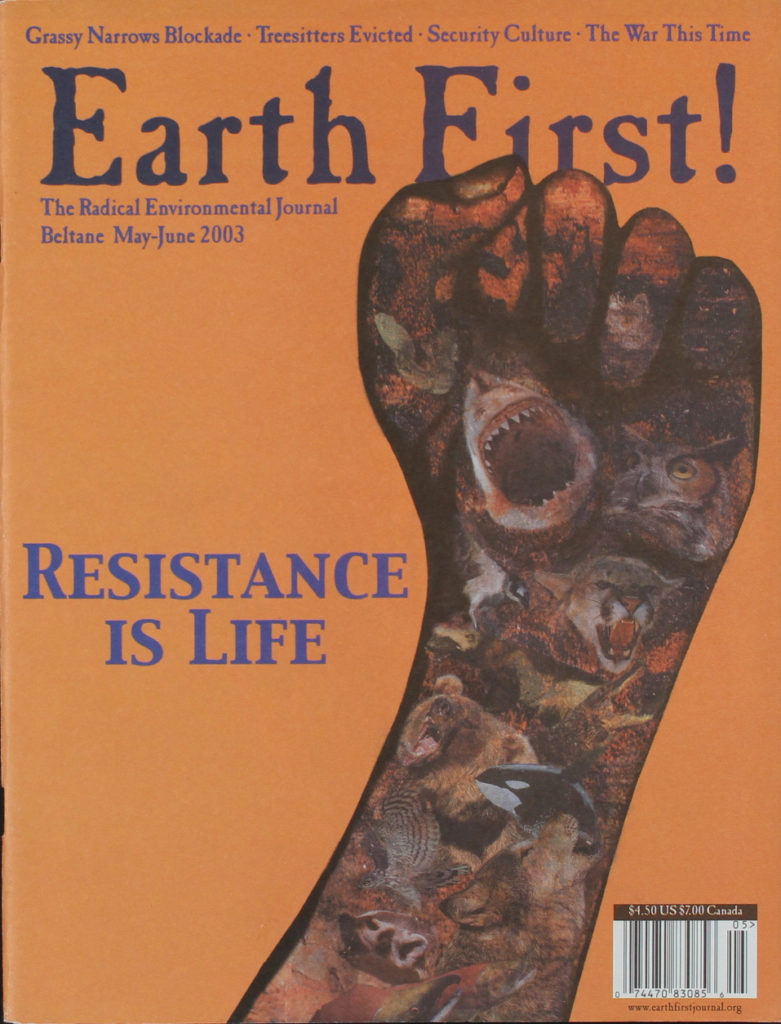
Eco-Anarchist Collection
9 boxes of international eco-anarchist journals from the 1990s were donated to the archive by activists who used to run the magazine “Do or Die”. These include full runs of journals and newsletters from Earth First US and UK, as well as collections of a number of radical environmental and anarchist magazines. The collection also includes a large number of pamphlets.
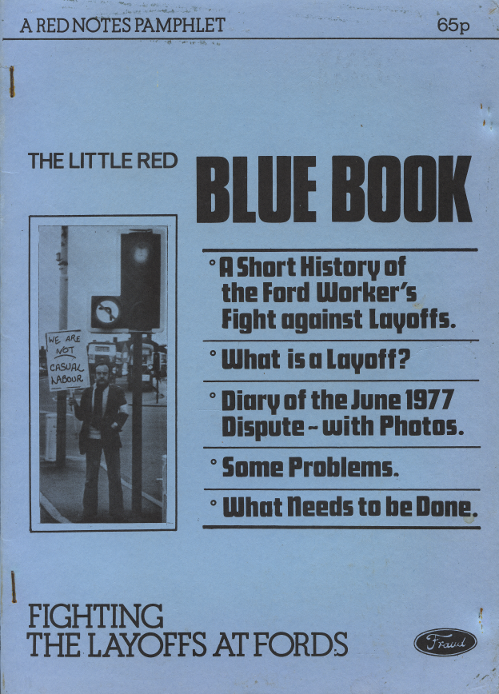
Ed Emery Ford Struggles Collection
Thirteen folders of archives of struggles that took place at the Ford Dagenham plant between 1969 and the 1990s. This is one of the most comprehensive archives in existence of activist materials arising out of the workers’ struggles at this car plant, and the material is regularly contextualised with writing and documents from other struggles in the auto industry around Europe. We have also digitised a slide show that Ed made in 1978 in collaboration with Terry Dennett/The Worker Photographer about the campaigns at Ford.
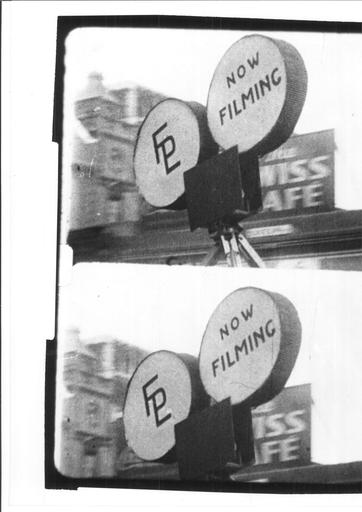
Film & Photo League
From 1934 to 1935 the (Workers’) Film & Photo League represented a grass-roots manifestation in Britain of the Communist International’s cultural politics, during the period of the ‘left turn’. Guided by the ‘united front from below’ strategy, the League articulated the Comintern’s ‘class against class’ policy through the means of agitprop. This involved using filmmaking, photography, exhibitions and screening events as tools for mobilising working-class politics. MayDay Rooms holds a collection of materials from the Film & Photo League, which also provides a powerful visual record of the conditions of working people’s everyday lives and related Communist campaigns, such as the National Unemployed Workers’ Movement. The material was collated by the photographer Terry Dennett in the 1970s for a study ‘of the cultural politics of the interwar period’. This informed his own subsequent work, examples of which can be found in another MayDay Rooms’ collection: The Worker Photographer.
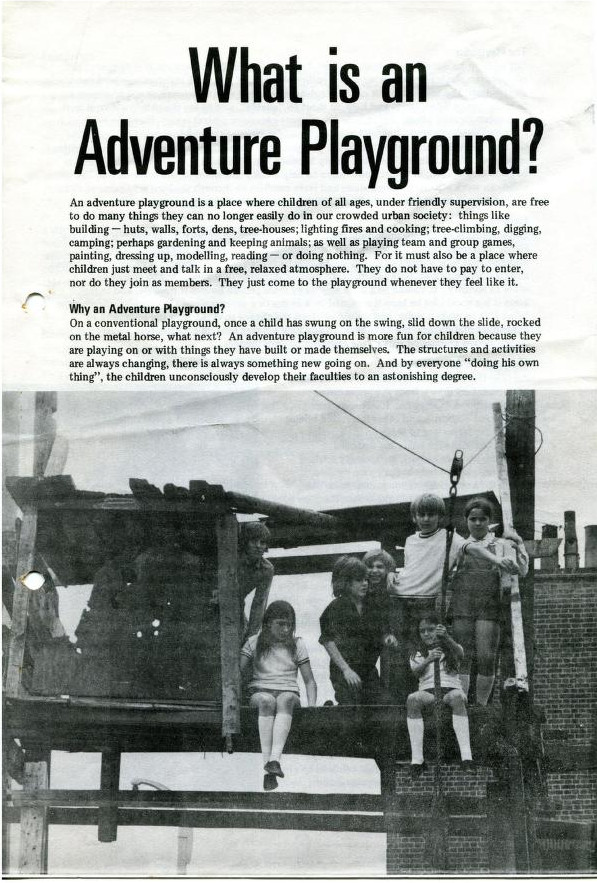
Four Corners – Wilf Thust
In 1973, behind a shopfront at 113 Roman Road, London E1, four young filmmakers – Joanna Davis, Mary Pat Leece, Ronald Peck and Wilf Thust – set up a cinema and production studio with the aim of introducing “films and filmmaking to those who had previously been excluded from the whole practice”. In the context of a polarised and politically charged Bethnal Green of the 1970s, many local children and young adults found at Four Corners – and in Wilf Thust’s workshops in particular – a sanctuary where they could explore forms of self-representation and develop vocabularies of commonality, resistance and dissent. These sentiments are shared by MayDay Rooms and since late 2013, Wilf has ‘reopened the account’ – together with some of those involved in the 1970’s workshops and many others – making collaborative use of his film output, notebooks, and photographs. This process, which takes the form of screenings, meetings and workshops, will continue over the next few years.
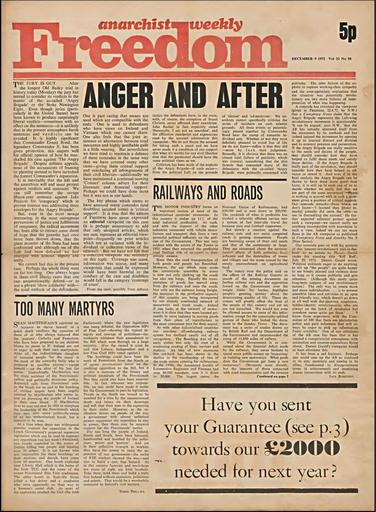
Freedom
Sundry copies of Freedom, ranging from the years 1924 to 1996, donated by Housman’s Bookshop. Freedom, a magazine of ‘anarchist socialism’ (later ‘anarchist communism’), was founded and edited by Charlotte Wilson in association with the geographer and anarchist Peter Kropotkin. Publication began in 1886 from the offices of the Freethought Press near St Bride, Fleet Street; it was printed on the Socialist League presses by arrangement with William Morris. Freedom was published continuously throughout the 20th century. Among its editors were Vernon Richards and Colin Ward, operating from its long-term home in Angel Alley, Whitechapel. The closure of its print edition was announced in March 2014.
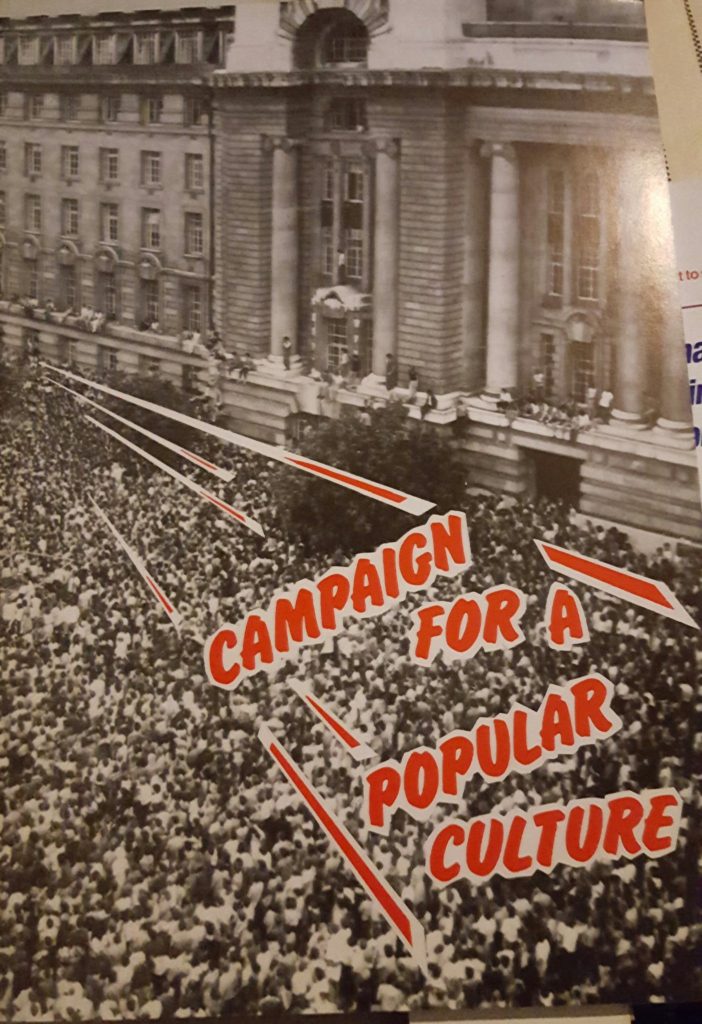
GLC story
”The GLC Story” project has deposited several boxes of publications and documents from the radical years of the GLC between 1981 and 1986. This collection arises from an oral history project that took place between 2015 and 2017, and includes 12 boxes of material from various offices and campaigns run by the GLC.
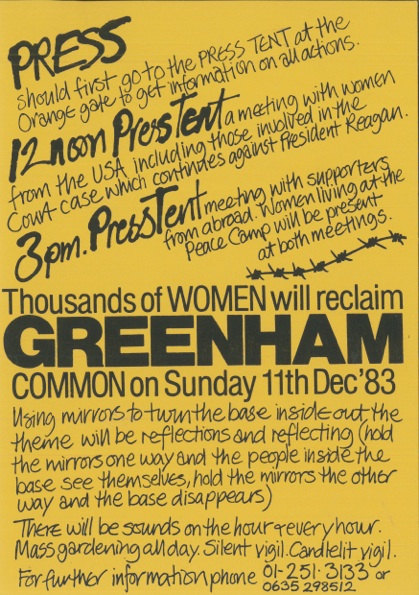
Greenham Common Women’s Peace Movement
Gwyn Kirk deposited six organized boxes of personal papers at MayDay Rooms relating to her long and deep involvement with the Greenham Common Women’s Peace Movement that grew up in protest against the siting of American Cruise missiles at RAF Greenham Common. Gwyn reflects: “The campaign spoke to me because it was creative and led by women. It pushed me to think about my responsibility for the state of the world: its systems of inequality, violence and greed”. Gwyn, who grew up in Britain, moved to the US in 1982 to work on a lawsuit that Greenham Women Against Cruise Missiles brought against Reagan et al. In some ways this collection of materials figures as the background research to this lawsuit as well as to a book, ‘Greenham Women Are Everywhere’ (1983), that Gwyn co-authored with Alice Cook. Amongst the materials are press clippings, self-published newsletters, flyers, correspondence, fanzines and documentation of the international support the Women of Greenham received.
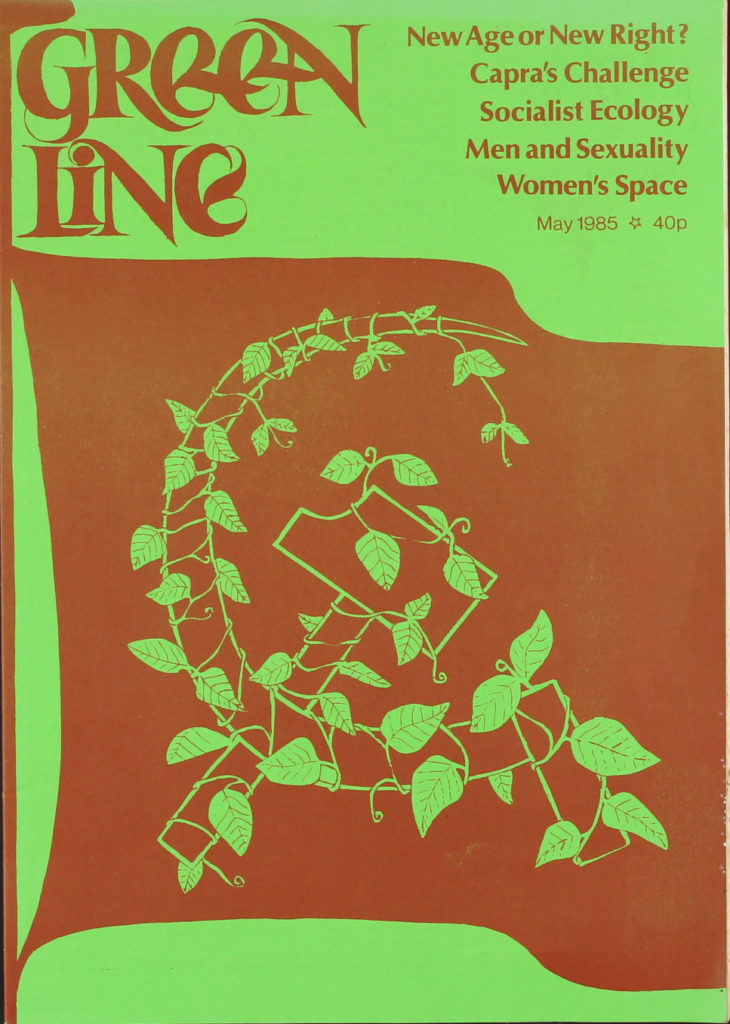
Greenline Magazine
A complete run of 36 issues of Greenline Magazine, which Jon published between 1982 and 1985. These magazines document the early years of the radical ecological movement: a subject that we increasingly have well represented in our archives. The magazines describe a burgeoning movement, in which there were particularly close ties between ecological thinking movement and the peace movement, at a time in which both war and environmental collapse appeared as twin apocalyptic threats. There are also interviews with politicians and figures from public life, discussions of feminism, global politics and economics, and disputes around left politics and the New Age, as well as more practical issues of ecological and sustainable living. These are presented alongside discussions and letters about ongoing activism (including actions of the peace movement at military installations) and protest. Each magazine has a beautifully cover designed by Richard Hunt.
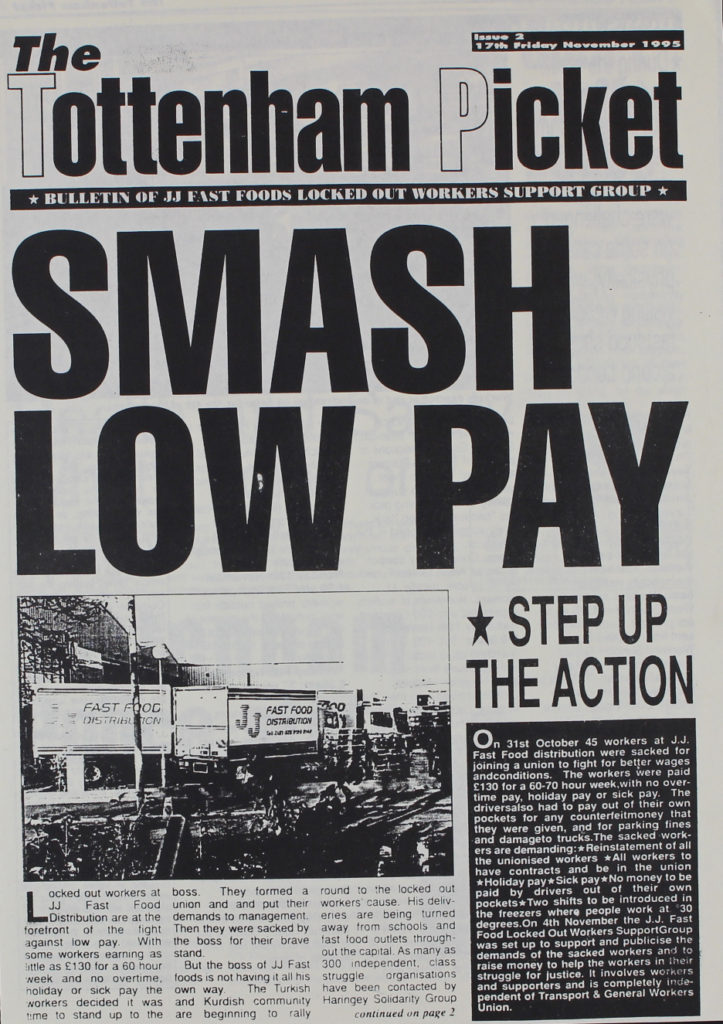
Haringey Solidarity Group (HSG)
Haringey Solidarity Group (HSG) started life as the Anti-Poll Tax group in Haringey. Once the Poll Tax was defeated most Anti-Poll Tax groups around the country split up. In Haringey we knew there were other issues just as important as the poll tax, so in 1991, we stayed together and change our name to Haringey Solidarity Group (http://www.haringey.org.uk). HSG is a group of local people who feel things need changing and don’t have much faith in politicians and other “so called” leaders to do it for us. Things will only get better for ordinary people when we decide what is best for us. It is not for some boss or so-called leader to decide what they think we need. We believe in doing things for ourselves wherever possible and we try to encourage others to do likewise. We also feel that when ordinary people fight back against the system (be that your boss, the local council or some multi-national company) they need to be supported.
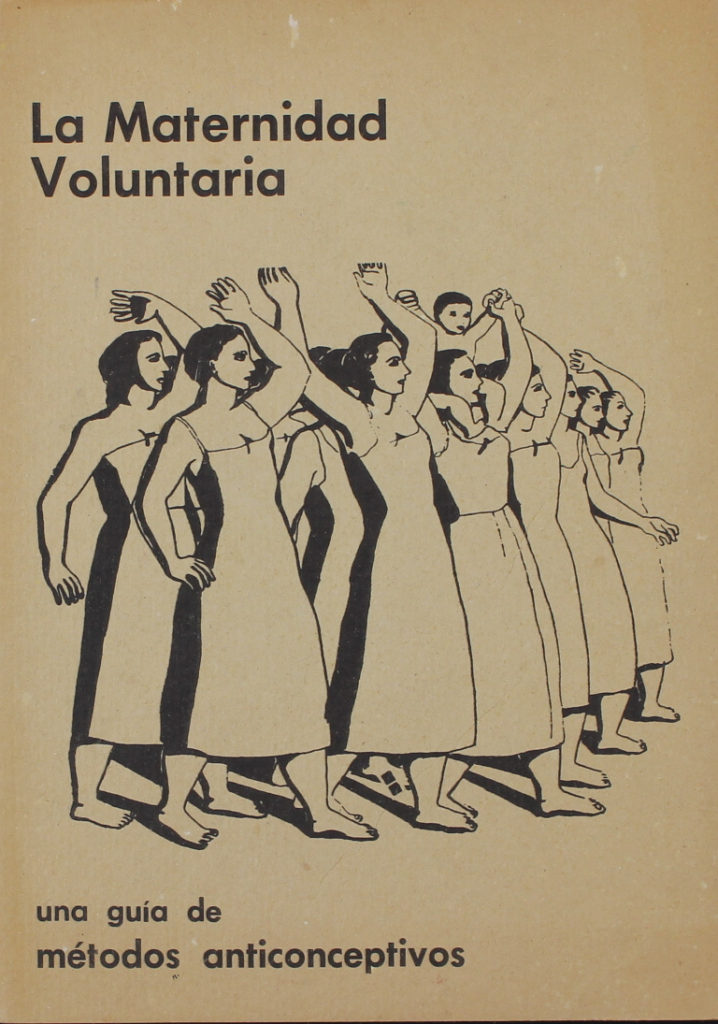
History Workshop Journal
Copies of the early issues of History Workshop: A Journal of Socialist Historians, donated by Anna Davin of the founding editorial collective. The history workshop movement emerged in the ferment of the 1960s, animated, according to its Ruskin-based presiding spirit Raphael Samuel, by the “the belief that history is or ought to be a collaborative enterprise, one in which the researcher, the archivist, the curator and the teacher, the ‘do-it-yourself’ enthusiast and the local historian, the family history societies and the individual archaeologist, should all be regarded as equally engaged.” (History Workshop: A Collecteana, 1967-1991, Documents, Memoirs, Critique and cumulative index to History Workshop Journal. Ruskin College. pp. 1V.) A brief history of the movement can be found at: http://www.historyworkshop.org.uk/the-history-of-history-workshop/, including a bibliography.
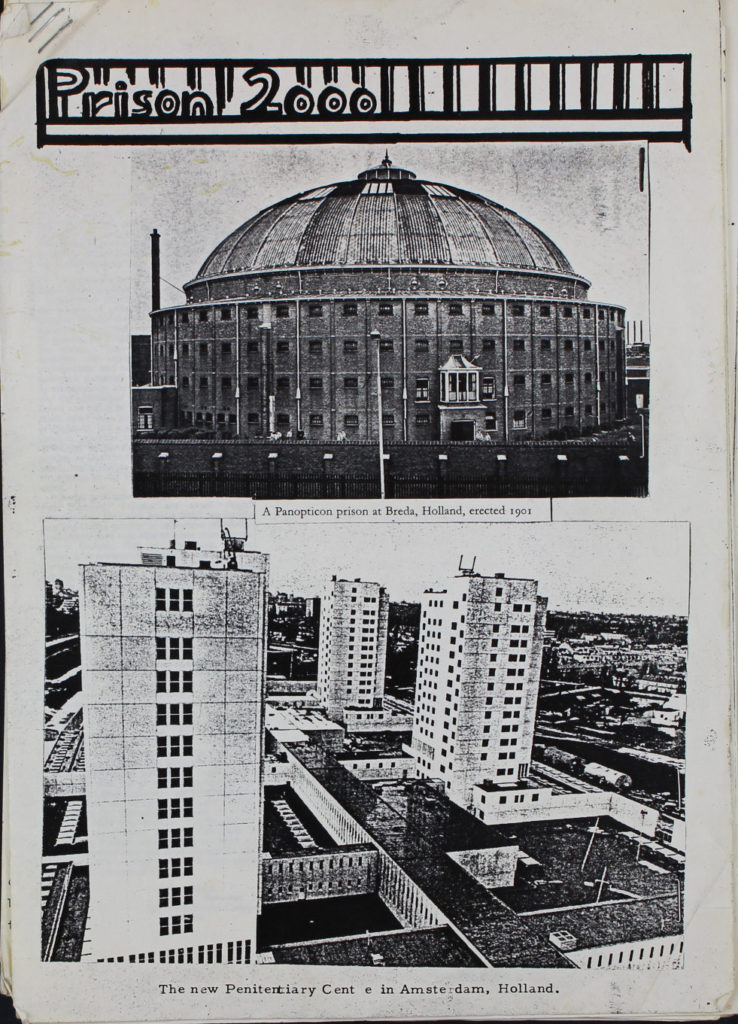
HMP
This collection gathered pace after the donation of a file of press cuttings and commentary around the Strangeways Prison Rebellion of April 1990 and has since been supplemented by copies of Taking Liberties, Inside Information and other newsletters, books and pamphlets. It is to be hoped that this collection can serve in bringing to light a lesser known area of activism that centres upon the repressive conditions inside prisons and prisoner resistance to these. Thanks to 56a Duplicates Committee and Mike Edinburgh.
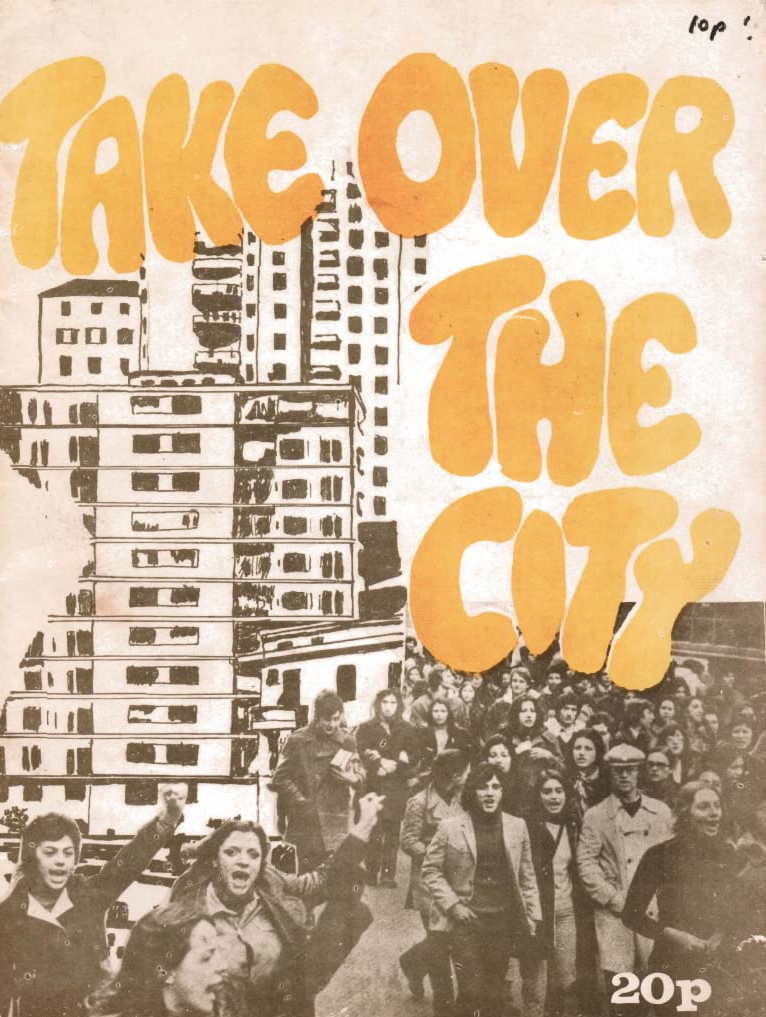
Housing Struggles
More materials have been added to our Housing Struggles archive as part of our HLF-funded project. The collections include paper and digital archives from over 70 campaigns from all around London. Alongside this, a two box curated collection on the politics of organised squatting from the end of the 1960s through to the 1990s.

Inventory
This journal for fierce sociology, for finding, losing and collecting, first appeared in the mid ‘90s and continued in various forms for a decade. The journal was the spine of Inventory, a thread enabling it to shapeshift into posters, stickers, radio broadcasts, films and installations. At the outset they declared an independence from categorical norming and hierarchical dogma: “Our material has been collected from the four corners of the floating city, and no object, text, picture has been held in higher esteem than the other.” This lack of restriction gave room for its writers to wriggle free from disciplines and invent true stories from material found lodged in the cracks of the tarmac and in the pot holes of the set text. Inventory recently resurfaced in the Fleet Street Area and left us copies of their journal (1995-2005) as well as a box of ephemera that has been dubbed the Inventory ‘Time Box’.
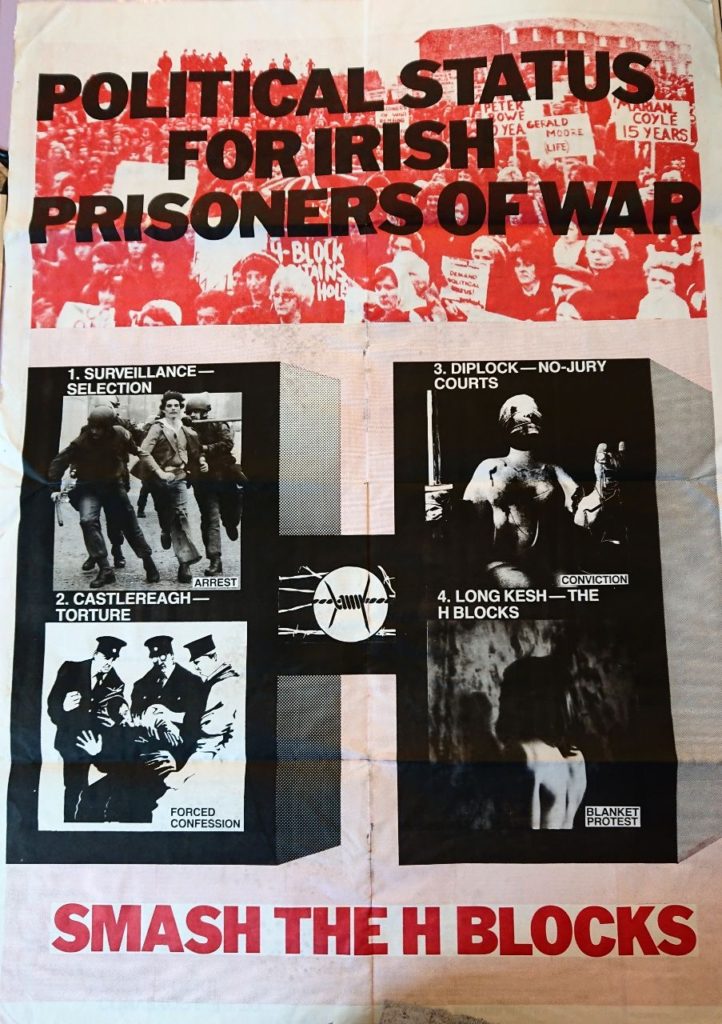
Irish Struggles after 1968
A small collection of Republican ephemera from the late 1960s and 1970s during the first years of the troubles. These include an extremely rare nearly complete run of the newssheet ‘Free Citizen’, and its subsequent incarnation ‘Unfree Citizen’. Also included in the collection are copies of the republican feminist journal ‘Banshee’, a number of copies of ‘An Phoblacht’, related ephemera including some materials from the Troops Out Movement, and a small number of posters.
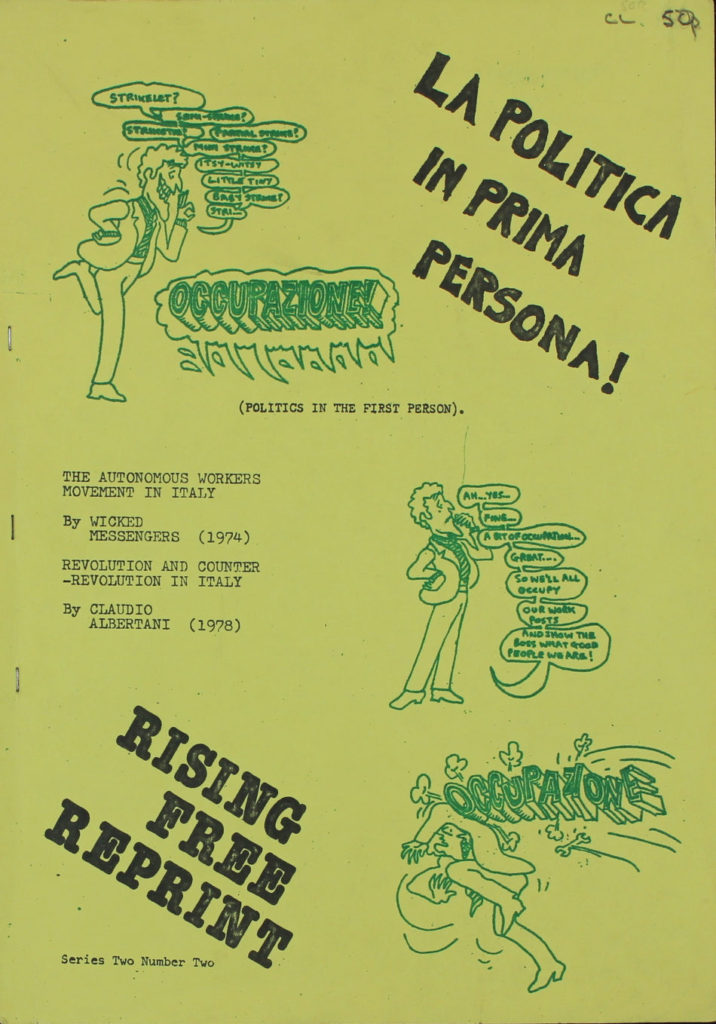
Italia Rossa
Inspired by the fruitful of exchange of Big Flame, Midnight Notes & Zeroworks with Italian political and theoretical developments, MayDay rooms has begun a small collection of Italian language materials and associated translations. These cover the Red Notes project and the early translations of Sergio Bologna and Mario Tronti in Telos Journal. We are grateful to Neinsager for dropping off some Italian language journals including an anthology of autonomist texts from 1974 and to Steve Wright for copies of America Owl and documents pertaining to the Committee Against Repression in Italy. A visit from Giovanni Rubino and Aria Spinelli in March 2015 saw the activation of this collection in the form of a group discussion with Giovanni about some facets of his solidarity-driven artistic work as a muralist at the Alfa Romeo factory and as the instigator of a collective performance at the Edison Factory in Mortedison.
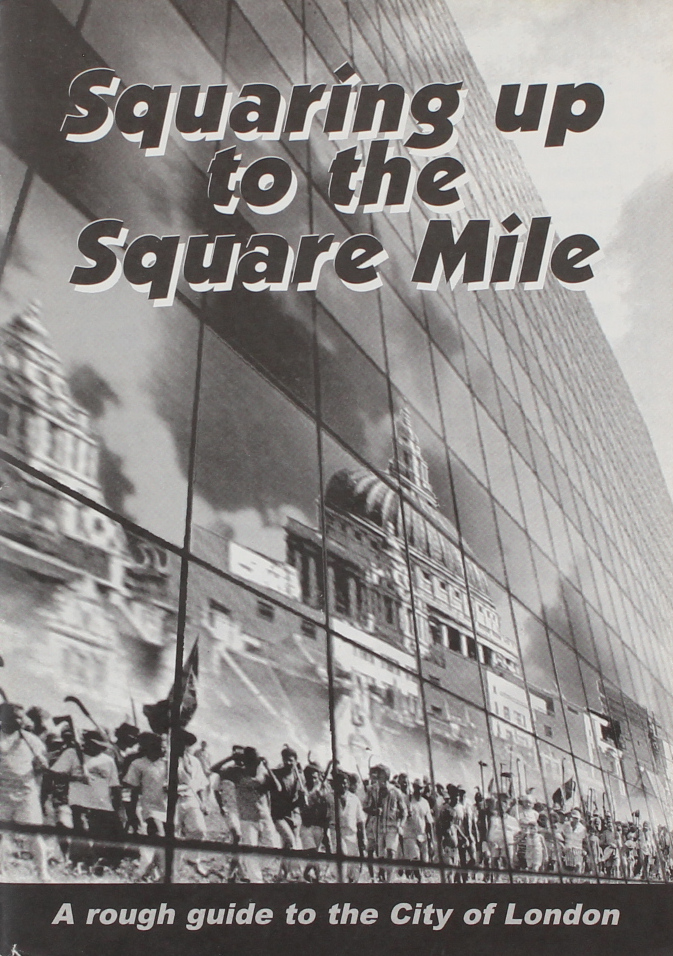
J18 and Anti-Globalisation
Two collections comprising materials from Kevin Biderman and Nicola Kirkham. They include documents, ephemera, and film from the anti-globalisation movement from the mid-1990s to the early 2000s. A special collection is made of materials relating to the Carnival Against Capitalism, better known as “J18”, a riotous protest that took place in the City of London on 18 June 1999. It marked the first of a series of large anti-globalisation protests at international summits in the following years.
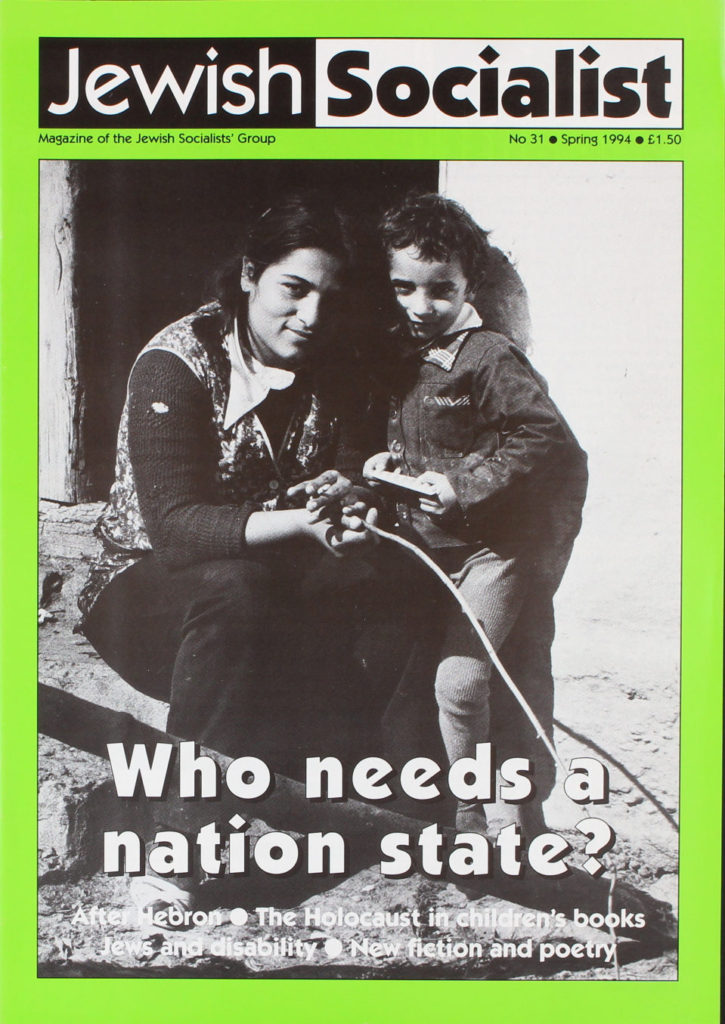
Jewish Socialist Magazine
A full run of Jewish Socialist Magazine, the journal of the Jewish Socialist Group. The group, which formed in Manchester in the mid-1970s has produced a magazine since 1985. Contents include several decades of anti-racist struggles, Jewish anti-Zionism, and radical Jewish history, culture, and politics.
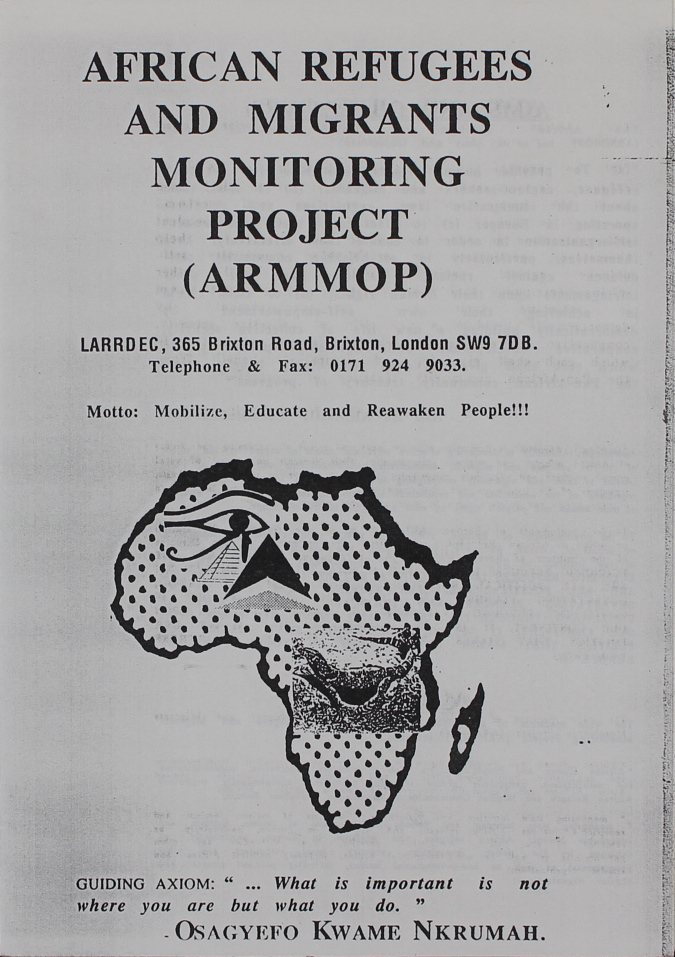
Jubilee 2000 Afrika Campaign
MayDay Rooms collection of materials related to the Committee for Academic Freedom in Africa and the group that has gathered around it has led to a deposit of activist materials based around de-coloniality, reparations campaigns and debt cancellation. Many of those UK-based activists involved with Jubilee 2000 gathered at MayDay Rooms in November 2015 for a consultative dialogue entitled ‘Afrika in Debt Bondage.’ Thanks to Kofi Klu for this assortment of flyers, posters, magazine and texts.
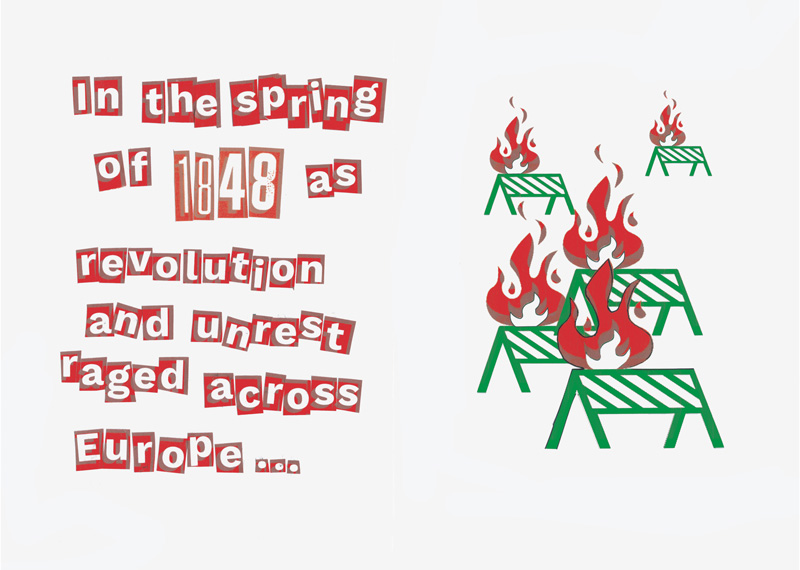
Kennington Park
Kennington Park’s ‘hidden past’ is tightly linked with radical working-class history that pivoted on the Enclosure of Kennington Common in the mid-19th century and its subsequent landscaping as a Victorian Royal Park.The key ‘hidden’ event, absent from the official narrative, is the Chartist monster rally of 10th April 1848, which happened during the European “year of revolutions”.
Stefan Szczelkun’s materials, housed at MDR, present an attempt to change public perception of this public space. Stefan conducted an informal ethnographic inquiry into the park’s working-class past and the recent attempts to erase it. The documents collected reflect his multidisciplinary engagement in various projects and groups active around Kennington Park in the 90s and 2000s. From slides, maps, drawings, news clippings to self-published pamphlets, Radical Southwark ephemera, RTS leaflets and Friends of Kennington Park minutes – the collected materials are a valuable resource for anyone willing to research the contested history of one of London’s landmark public spaces.
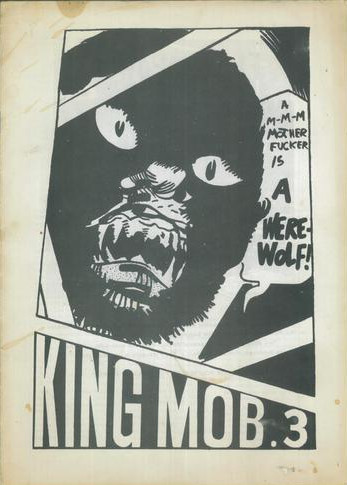
King Mob and Associated
On the occasion of a new translation of Raoul Vaneigem’s Revolution of Everyday Life (PM Press, Oakland), translator and former member of King Mob, Donald Nicholson-Smith, deposited a sample of materials related to the Situationist milieu of the late 60s with MayDay Rooms. This material, which includes copies of publications assembled by King Mob as well as early English translations of Situationist material that featured in short lived publications such as Neon and HAPT, help chart the dissemination of Situationist ideas by means of the underground press and, later, the punk movement. These materials, contained in a single box, were unpacked by Donald on 30 March 2013 and an initial cartography was drawn up for the orientational use of those continuous younger generations.
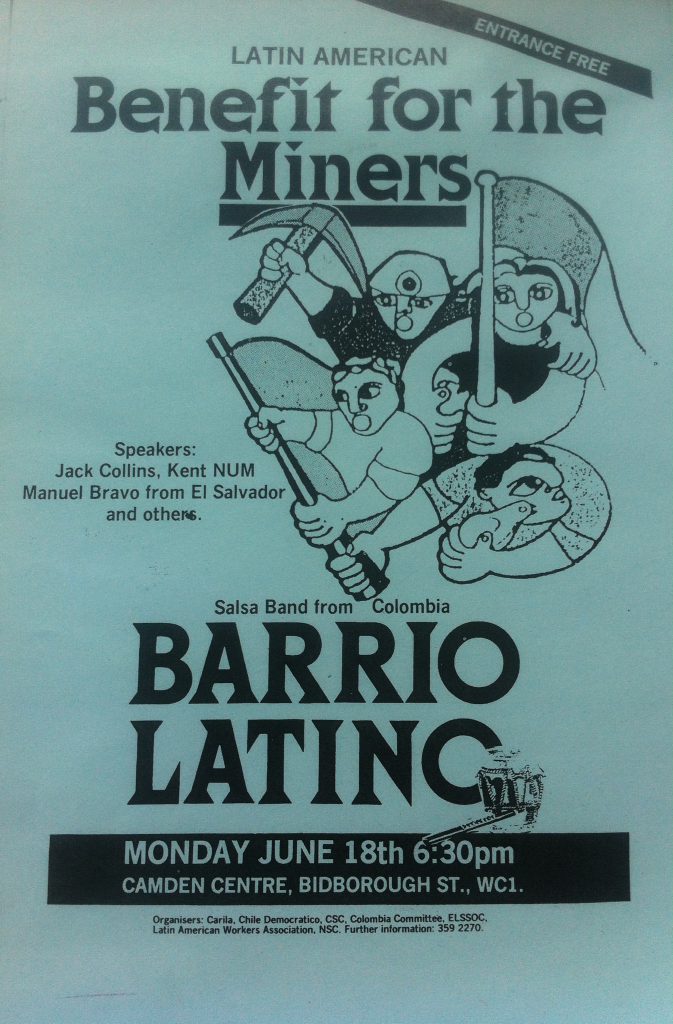
Latin American Workers Association (LAWAS)
The Latin American Workers Association (LAWAS) was based in London and active in two phases – the early 1980s and then 2002-13. Many of its activists went on to play a leading role in different community organisations, campaigns and trade unions, and it was a direct predecessor of the current cleaners movement.
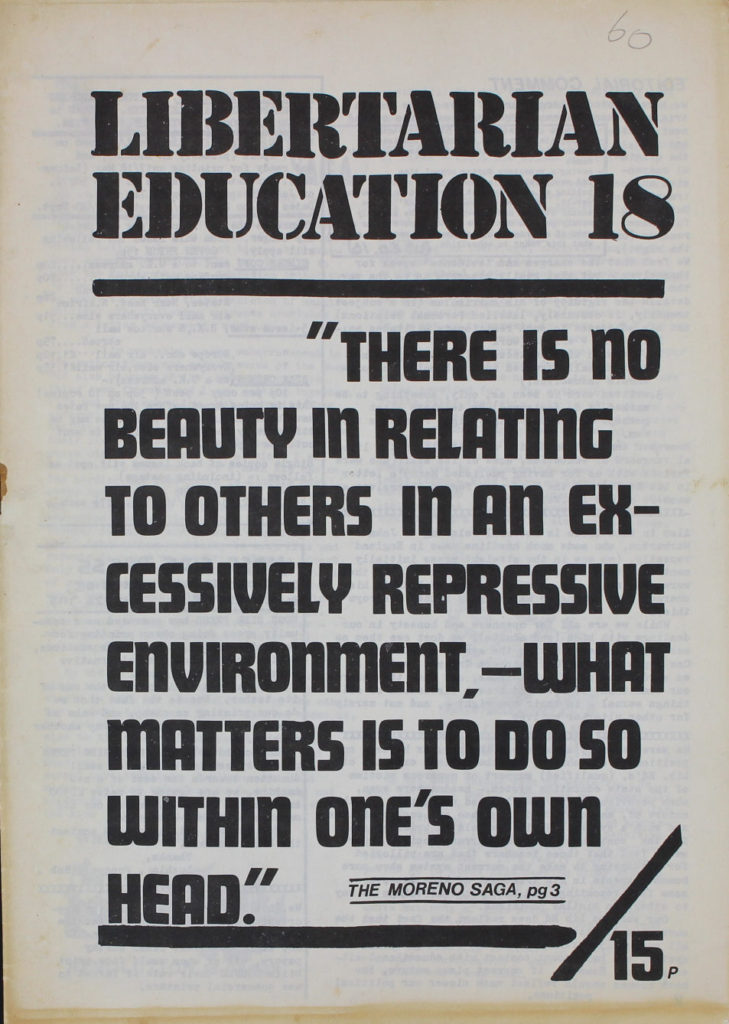
Libertarian Education
From its beginnings as the Libertarian Teachers Association in 1966 up to its present day incarnation as an e-magazine and book publisher the shifting collectives around this consistent venture has continued to press for “the liberation of learning”. Passing though several phases during its 50 years history the magazine has covered educational issues and enthusiastically reported on daring educational initiatives that have followed in the wake of the work of Homer Lane and A.S Neil. We are grateful to Richard Musgrove of the ‘Lib Ed’ Collective for loaning a full run of Volume 2 (Spring 1986 to Summer 1999) as well as a selection of Lib Ed Books, scans of the first three issues of Libertarian Teachers’ Association Newsletter (1966-67) and the classic ‘Play’ issue from 1994.
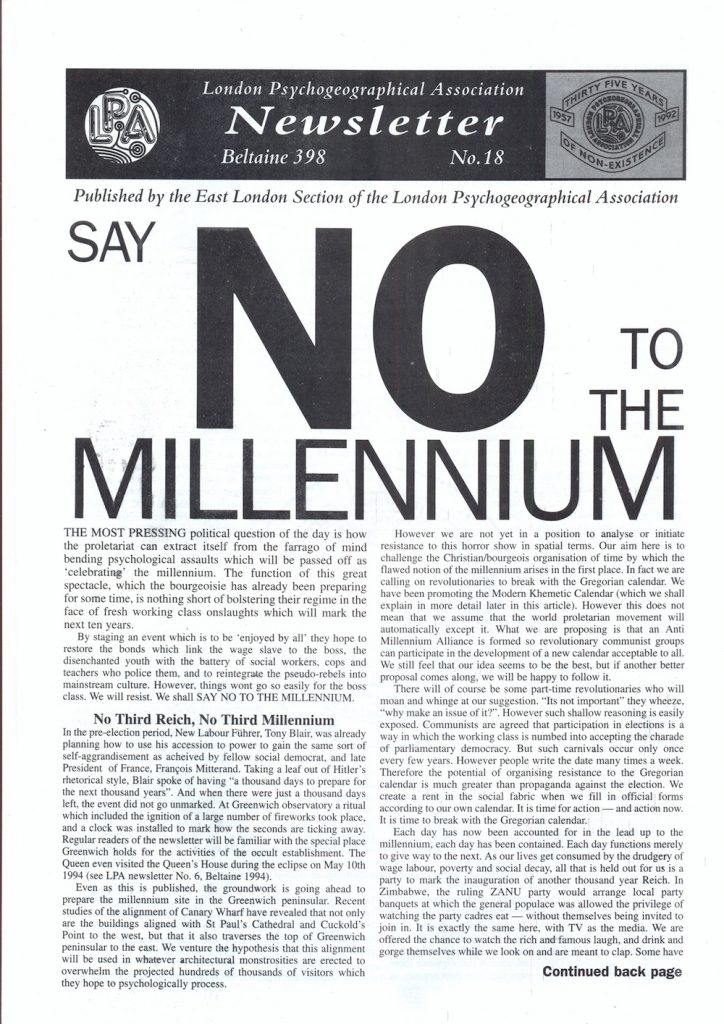
London Psychogeographical Association
The LPA was first mooted in 1957 by the British artist Ralph Rumney who was amicably expelled from the Situationist International for his failure to deliver a psychogeographical report on Venice. Just as the report eventually surfaced in accordance with its own timescale, this psychogeographic project was reinvoked in the early 1990s as the LPA East London Section by Fabian Tompsett. After 35 years of non-existence a series of newsletters and pamphlets began to be issued to report on the persistences of ruling class power and on free associational drifts through history. With an open non-sectarian context and contributions from writers associated with the Luther Blissett multiple name, the LPA newsletters regularly displayed a humour reminiscent of Class War and added to this a parodic erudition to some degree aimed at exposing the pretentions and callousness of a western enlightenment tradition and how this persistently feeds into blunting the left opposition. LPA activities included trips to destinations of psychogeographic interest (including an American Civil War battlefield in London’s Globe Town), the organization of three-sided football matches and the inauguration of bus stop competitions. MayDay Rooms are happy to have received a collection of Newsletters, ephemera and mysterious samizdat from Fabian. Open Up The South East Passage!

Lucas Plan
In 1974 Lucas Aerospace announced restructuring and cuts to jobs. Around half of the company’s output supplied military contracts based on state funding. In response to the cuts and the offshoring of jobs, the workers responded to this by organising themselves into a Combine. The Combine spent two years developing a proletarian corporate plan in which plants used to make weapons could be recommissioned to produce socially useful goods. Plans for socially useful items were drawn up by the workers, and included cutting edge green technologies such as wind turbines and hybrid power packs. Ultimately, though, the Labour government and the unions were unable to put enough pressure on the company management, and despite the depth of the plans created by the workers they were never implemented. Eventually many workers from the Combine were able to set up the Centre for Alternative Industrial Technologies. The Lucas Plan Archives contains letters and minutes, exhibitions and newsletters, newspaper cuttings and campaign materials, as well as materials produced towards the corporate plan.
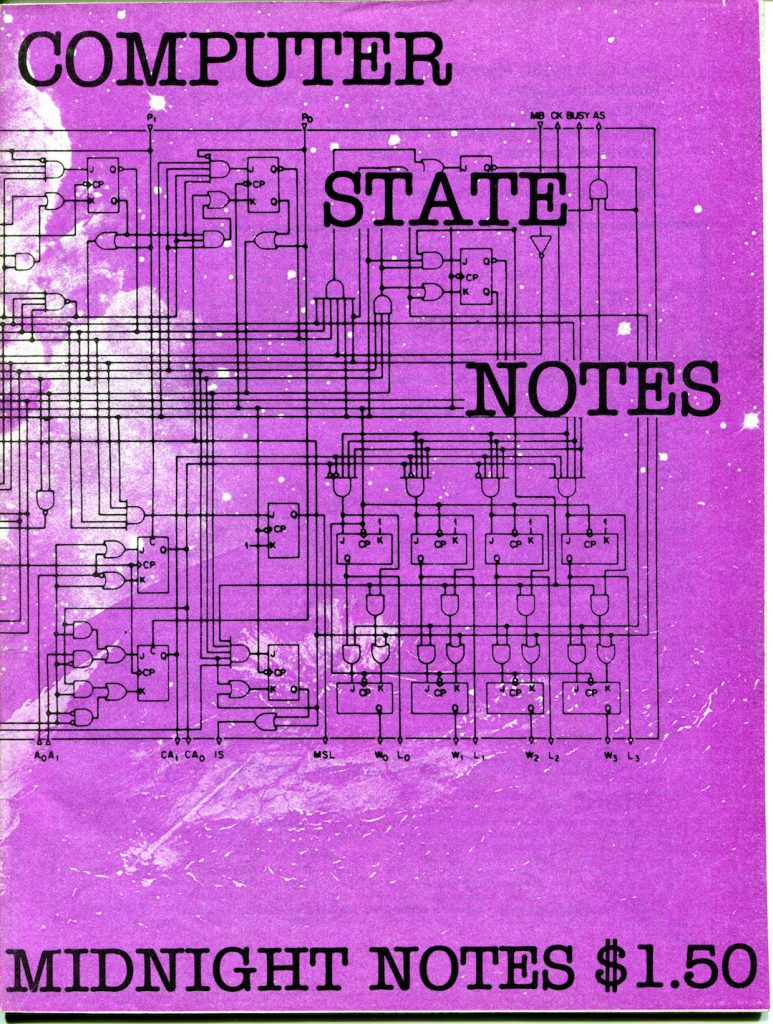
Midnight Notes
The Midnight Notes collective, which marked a coming together of various radical strands of US left politics, began publishing its journal in 1979. The strands that comprised it could be said to have been influenced by the late 60s protest movements that included anti-colonial struggles, Italian autonomist Marxism and the Women’s Liberation Movement. A retrospective text from 2009, entitled ‘High Entropy Workers Unite!’, describes the project as having been “an anomaly in the United States Left” that had at its inception a concern to “theorise social struggles and class composition”. Internationalist in outlook it maintained a class perspective as it charted the changing crises of capitalism, changes that are reflected in the themed issues of its journal: the anti-nuclear movement, the work/energy crisis, technological revolution, globalisation, the new enclosures. A full set of these journals as well as associated pamphlets, correspondence and ephemera covering the period 1979 to 2009 were kindly donated by George Caffentzis.
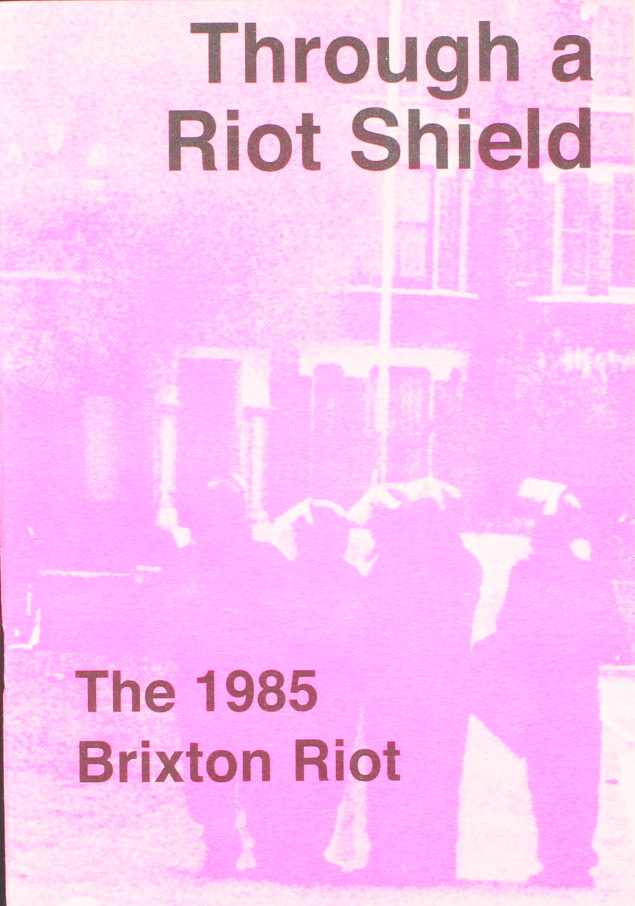
Miscellaneous Pamphlets
Pamphlets have been in existence for as long as the printing press and are often associated with sedition and the distribution of censored and hard to get hold of material. With access to publishing more or less subject to monetary and professional control, the pamphlet has long been a means of subtly appropriating the means of publishing production and bringing ideas into circulation at a low cost. In these post internet times, MayDay Rooms is honouring this form through a growing collection of left libertarian pamphlets donated from many sources as well as by encouraging new publications through its Riso printer.
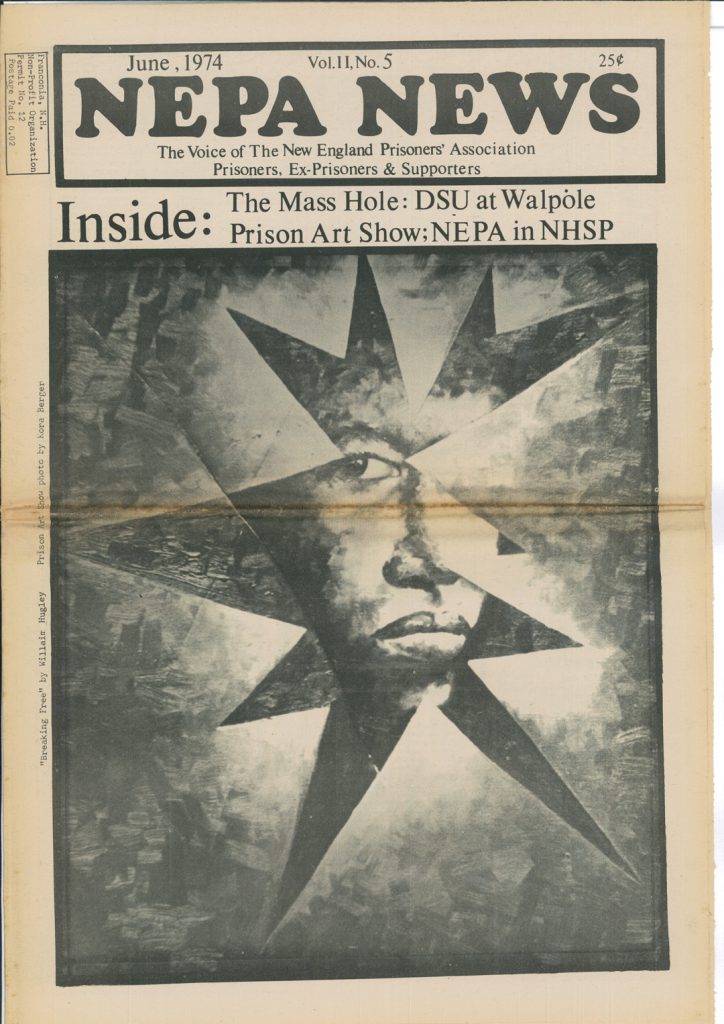
NEPA News
Subtitled “The Voice of the New England Prisoners’ Association”, these newspapers, with articles in the main written by prisoners themselves, are the practical outcome of a militant pedagogic involvement in both the education of prisoners and in the publicization of struggles against the oppressive regime of the US prison system. Between 1973 and 1975 the newspaper covered the situation of women prisoners, reported on prisoner conferences and kept abreast of such notorious cases as the Attica Brothers. The eighteen copies of NEPA News held by MayDay Rooms mark a little known history of the prisoners’ movement in the US. The intent of NEPA can be read in their May Day Proposal of 1975: “(1) Fight Racism/Fascism: Mass Struggle for Mass Victory! (2) Equal support for All the System’s Prisoners (3) United Front to abolish Incarceration of the Oppressed!” MayDay Rooms would like to thank an ex-member of the editorial collective, Peter Linebaugh, for entrusting these materials to MayDay Rooms.
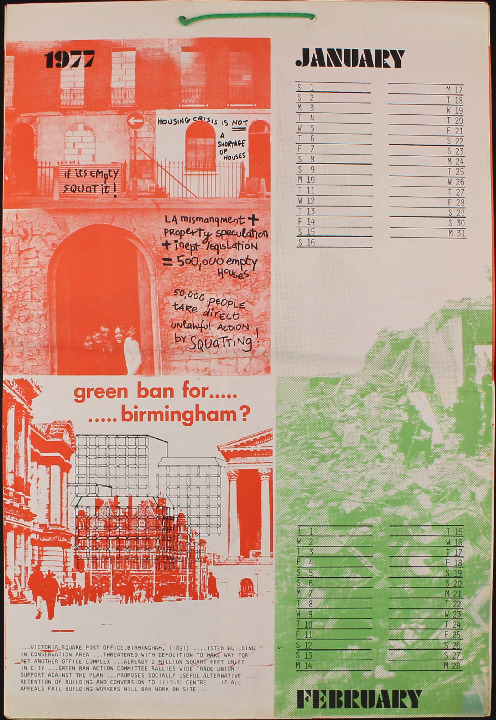
New Architectural Movement
A unique collection of documents from a significant activist movement that challenged the established order of architectural practice both in the private and public sectors goes online in November. In the mid-1970s the New Architecture Movement (NAM) gave a voice to progressive and inclusive initiatives that encouraged people to promote social change and greater equality through their work in the built environment.
The launch of NAM’s archive provides both a new resource for historical research and also a challenge to present and future generations in the field to reinterpret and apply NAM’s radical ideas to current issues. NAM brought together young idealistic architects, engineers and planners from across the UK seeking ways to reform working practices and the planning and development process. In an intensely productive period from 1975-80 the movement ran workshops, campaigns and seminars on a range of issues – professional education and governance, workplace structures, feminism, public sector design, worker unionisation – to create an alternative vision that put the priorities of people and communities ahead of developers,corporations and officials.
The archive brings together previously unavailable historical documents and publications held by former members that give a comprehensive picture of NAM’s aims, actions and achievements. It also provides an insight into the workings of activist groups in the 1970s, a period when many young people came together to advance the idealism of the 1960s and find practical and effective ways to promote social change. Key items include the NAM Handbook, which captures the essence of the movement’s objectives, structure and
activities, and a complete set of the movement’s lively magazine SLATE. With its provocative alternative graphics, SLATE encapsulates the collective energy of 1970s grassroots activism.
In 1980 the New Architecture Movement members moved on to develop their ideas, both in groups such as Matrix Feminist Design Co-operative and the Public Design Service, and also in the professional practice of individual former members. Between 1979 – 1985, Haringey Council Architects Department implemented a number of pioneering features from the NAM Public Design Service proposals, many of which went on to become adopted more widely. More recently there has been a renewed interest in the causes and issues that NAM championed in discourse, exhibitions and articles, and it is hoped the archive’s launch will further stimulate debate and fresh ideas to meet the critical challenges in the built environment today.
NAM’s digital archive is available at http://newarchitecturemovement.org
The website is hosted by MayDay Rooms, which also houses the physical archive, and is freely accessible at the MayDay Rooms’ office at 88 Fleet St, London EC4Y 1DH
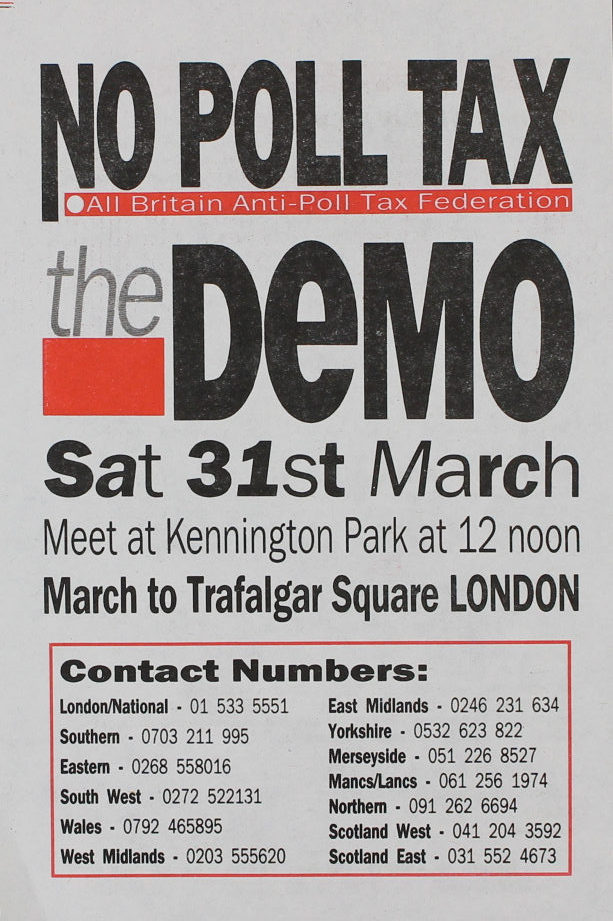
Poll Tax Rebellion
For many the revolt against the imposition of the Poll Tax marks a unique moment in British social history. This Tax, effectively replacing a property based rates system with a per-head ‘community charge’, was subject to widespread mobilisation and mass protest that figured as a ‘popular front’ against the then Conservative Government. Anti-Poll Tax groups sprang up initially in Scotland in 1989 where the Tax was introduced a year earlier than in the rest of the country. Anti-Poll Tax groups then spread throughout Britain and these were notable for the way in which they entailed a very local, often street-level, mode of organising. Regular meetings were held, information was disseminated and non-paying solidarities were formed that led to a resistance to each stage of the imposition of the poll tax: burning bills, protests at court and local government chambers, resisting evictions, campaigning against jailings. The small collection at MayDay Rooms includes press cuttings, pamphlets, meeting minutes, flyers, posters and newsletters from several Anti-Poll Tax groups. These materials depict the minutiae of a popular groundswell that following the Trafalgar Square Riot led to the abolition of the poll tax in March 1991.
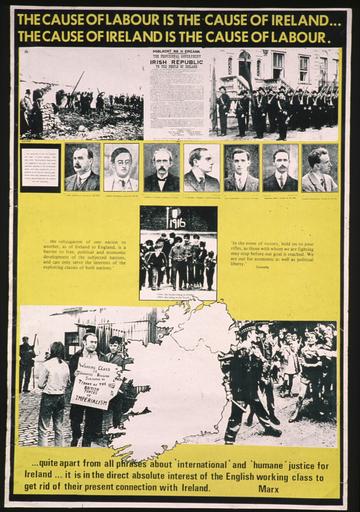
Poster Film Collective
Formed in the early 70s by ex-tutors and students from several London Art Colleges, the Poster Film Collective produced a series of hand-printed posters in support of political campaigns and a comprehensive series of educational posters that challenged hegemonic views of history. MayDay Rooms is pleased to be hosting a part of Andrew Darley’s collection which comprises of a set of posters titled “Between Future and Past” (aka ‘the feminist series’) and its attendant teaching handbook. Other material deposited by ex-participant Andy includes correspondence and documentation relating to many areas of the Poster Film Collective’s practice.
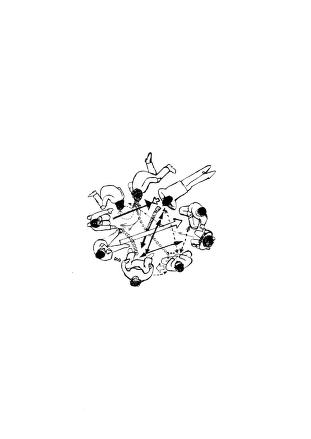
Psyche-Pol
The Psyche-Pol research project took place at MayDay Rooms in November 2013 and was initiated by Howard Slater and Tine Tvergaard and directly inspired by the Red Therapy activity of East London Big Flame in the mid 70s. Working in the space between politics and psychotherapy many questions were posed: How do we overcome the resistance to talking about and through emotion? Is so-called mental illness a response to the ‘mutual usury’ of capitalist social relations? Does psychotherapy per se have a normative effect? How can we bring the psyche into political struggle as a revolutionary catalyst? Can we find different ways of being together in groups that give space and time to both the singularising force of our ‘componential’ selves and to the ‘common resonance’ of affect? Tine and Howard produced a zine and deposited a box-file of research materials. Over the years a small collection of materials has been continuously gathered for the MDR Reading Room.
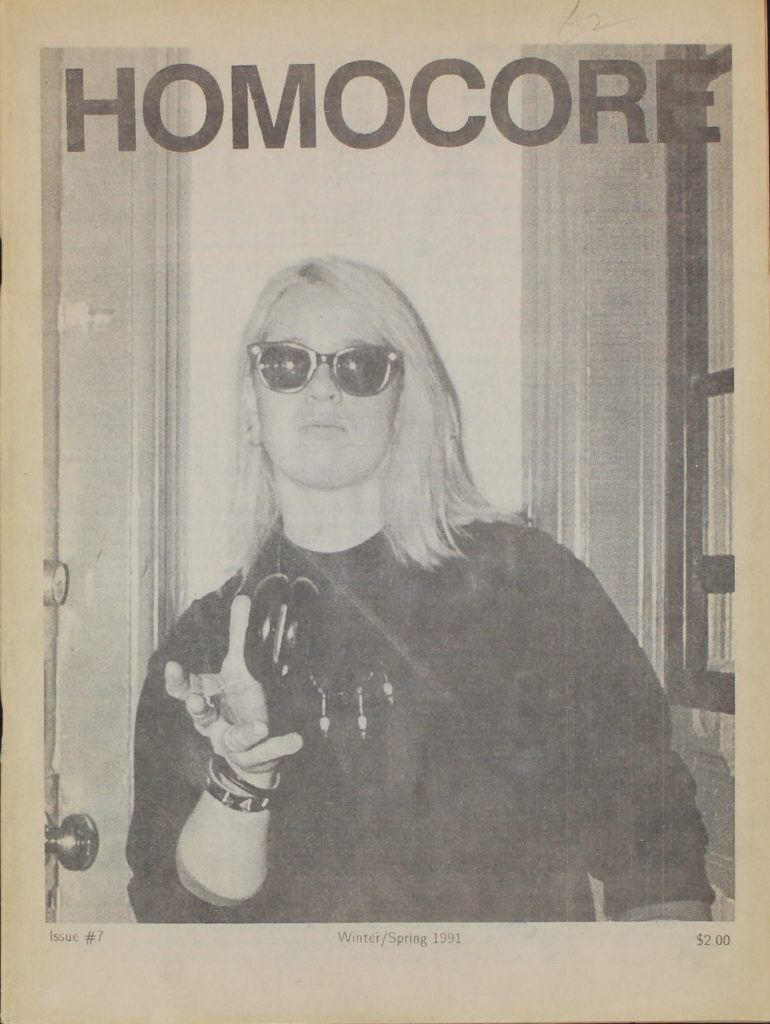
Queeruption & Associated
Queeruption was a rolling international DIY festival that took place eight times between 1998 and 2000. The intention behind these ad hoc festivals, often based in squats, was the intention to create an ‘opportunity for Queers of all genders and sexualities to gather, celebrate [their] queerness and diversity… and learn from each other’. This collection, coming to MayDay Rooms thanks to John Levin, includes ephemera from the first Queeruption festivals and is supplemented by a selection of queer zines from the 1990s.
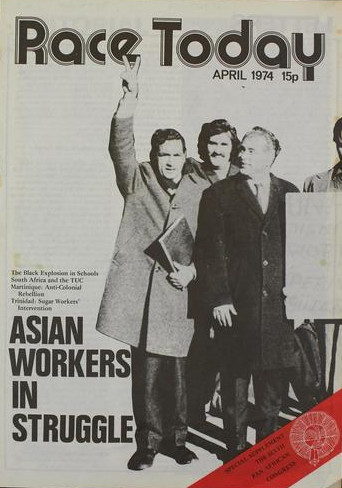
Race Today
The magazine Race Today was set up in 1969 by the Institute for Race Relations (IRR). Following a break from the IRR four years later, publication continued under the editorial control of the Race Today Collective. With Darcus Howe as the new editor, the publication initally adopted a libertarian Communist perspective, influenced by the politics of an older generation of Black Marxists, notably C. L. R. James. Race Today went on to provide politically engaged coverage of Black cultural and social experiences in Britain, from the Notting Hill Carnival to the Brixton Riots and beyond. MayDay Rooms holds an incomplete collection of the magazine Race Today magazine.
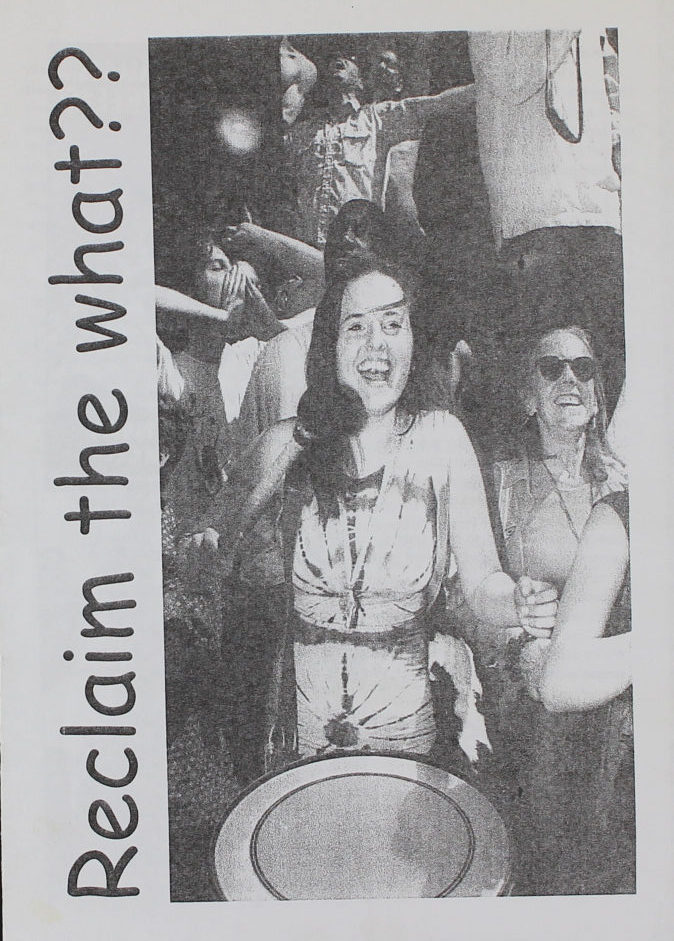
Reclaim the Streets
Reclaim the Streets (RTS) began in London during the 1990s, both as a playful form of protest in the guise of a street party, which was soon replicated across the globe and as a local hub of social and ecological direct action. London RTS published the Financial Crimes for the mobilisation against the International Monetary Fund and World Bank’s Prague Summit in September 2000. The situationist practice of détournement (diversion, hijacking or misappropriation) informed the production of this and other spoof papers, such as the Evading Standards (also issued by RTS for the previous year’s ‘June the 18th’ Carnival against Capital in the City of London). This practice entailed abandoning cultural production itself and instead plundering and closely mimicking existing cultural forms to subvert their original intent for propaganda purposes. MayDay Rooms holds a collection of materials relating to Reclaim the Streets and associated networks.
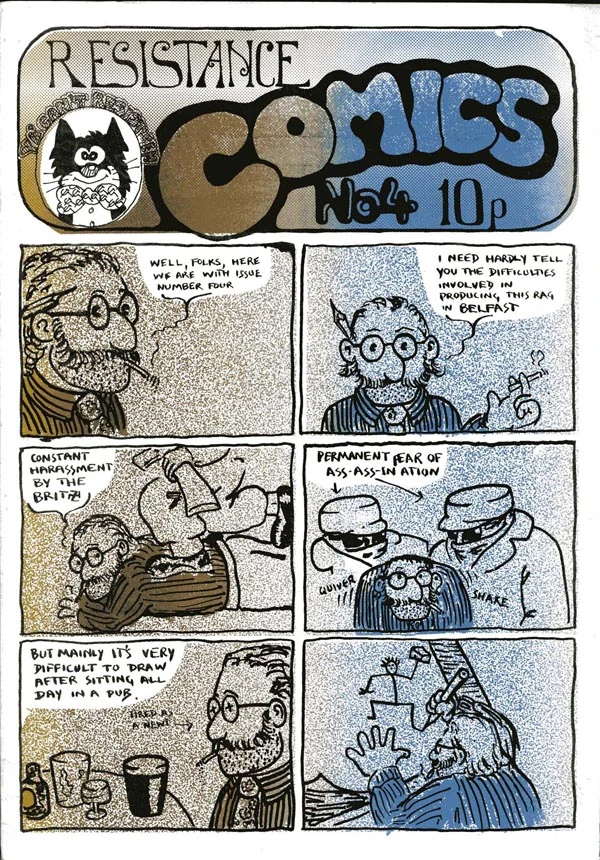
Resistance Comics & Associated
Resistance Comics hailed from Belfast and according to the Irish Comics Wiki the ten issues that appeared between 1975 and 1978 were the work of political cartoonist Brian Moore (aka Cormac). Characters that Moore invented include Paddy O’Looney and Red Biddy and there was a regular comic strip entitled ‘Revolution by Proxy’. These comics, along with several editions of Street Comix of Birmingham, found their way to MayDay rooms via Paul Westlake and Statewatch.
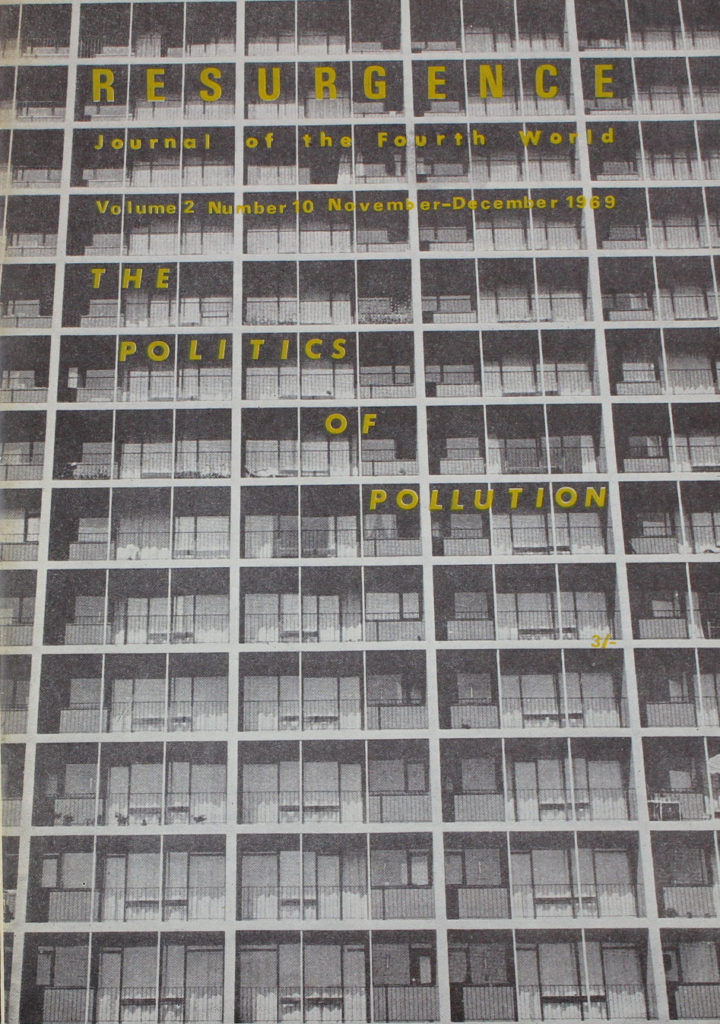
Resurgence (1969-1971)
Resurgence Magazine was founded by John Papworth, Leopold Kohr, E. F. Schumacher, and Herbert Read in 1966. The magazine described itself as a “Journal of the Fourth World” and published articles and letters from the perspective of ecology, localism, classical anarchism, and small-scale economics. Articles in the magazine range from dealing with global struggles, to activism in the UK, to movements for international peace. The magazine also had a commitment to publishing new poetry. MayDay Rooms holds a small run of fourteen early issues from 1969-1971.
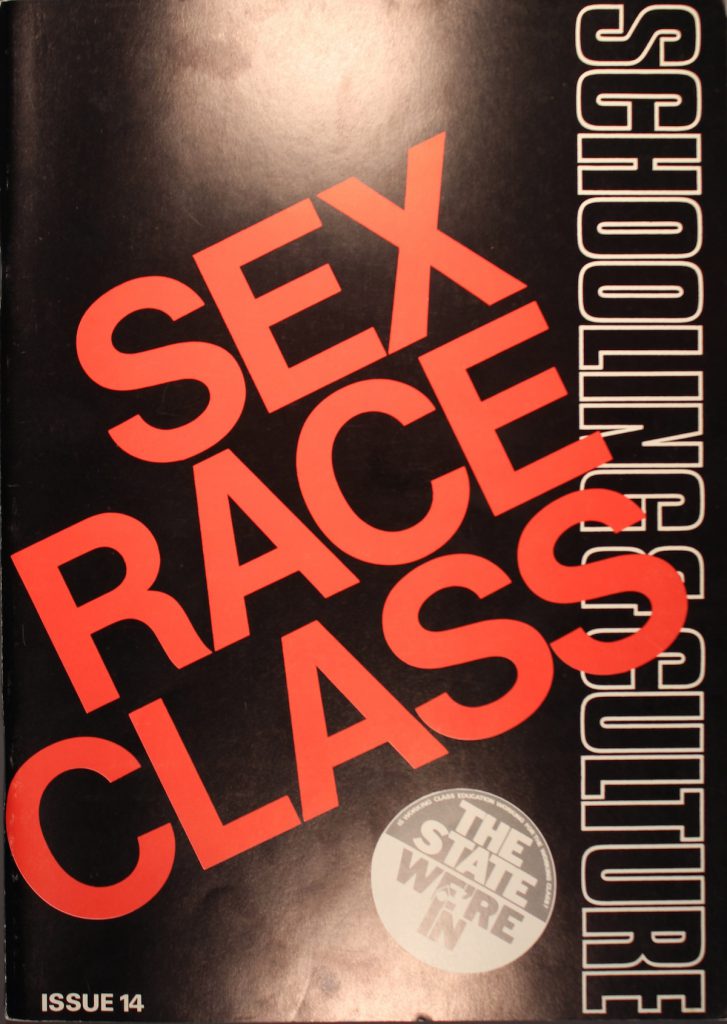
Schooling & Culture
Schooling & Culture journal was a collaboration between a group of radical left educationalists and young working class school students that began in the late 70s. The journal was based at the Cockpit Arts project in London and was initiated by Andrew Dewdney and Martin Lister as part of their ongoing cultural studies work at Birmingham University. Andrew has kindly deposited a set of journals and other associated material at MayDay Rooms and Russell Newell, one of the original participating students, is coordinating the re-activation of the journal by revisiting some of the themes Schooling & Culture covered as well as working towards producing a new issue.
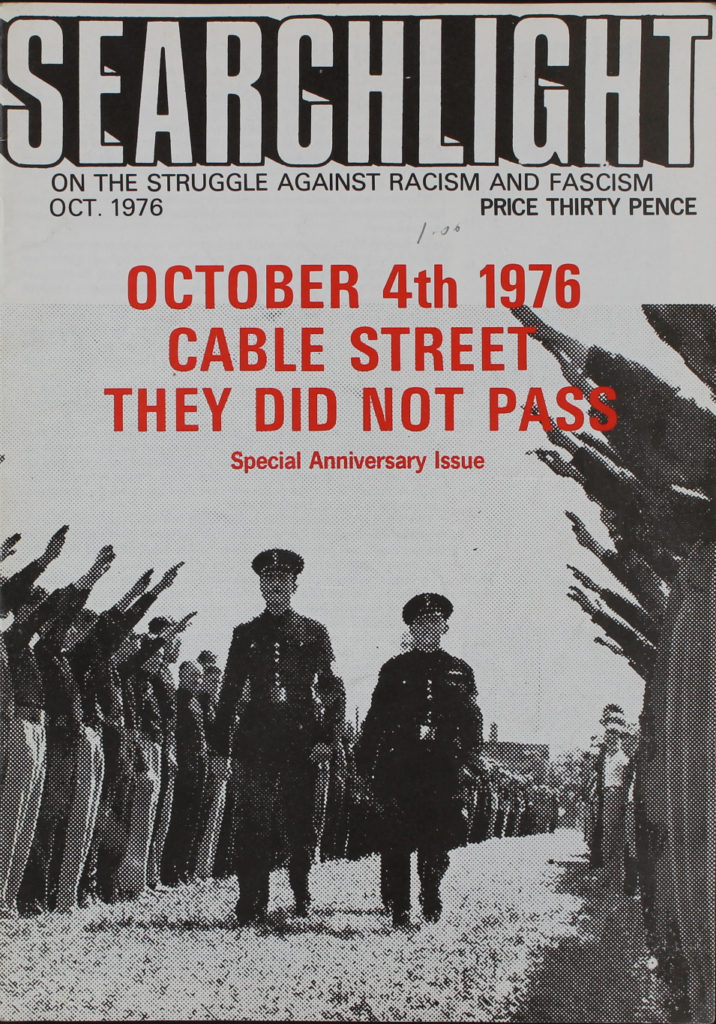
Searchlight Magazine
An incomplete run of approximately 100 issues Searchlight Magazine – which reported on far right movements – has been deposited in the archive. The magazines run from the 1970s to the 2000s and include detailed reports of fascist and racist organisations and actions both in the UK and internationally, and anti-racist and anti-fascist responses.
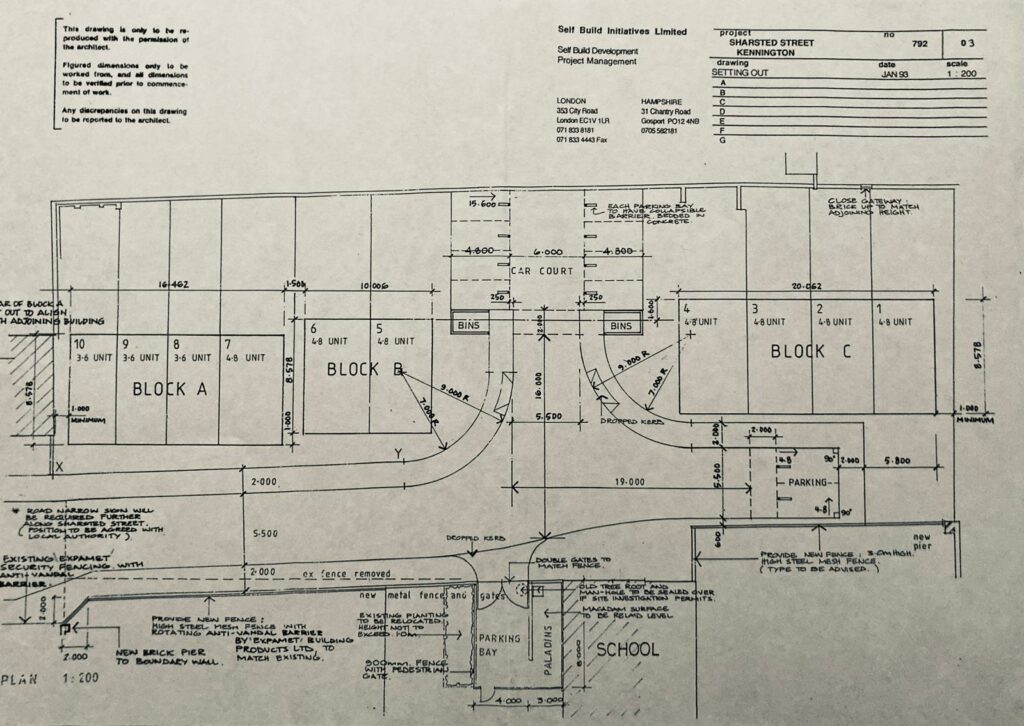
Sharsted Self-Built Association
In 1993, ten families from the Southwark housing list were offered the chance to build ten houses on a shared ownership basis. The part they owned would be earned the sweat of their labour on the project. This turned out to be a unique experiment, and, although it was fairly successful, it represents a rare example of participatory architecture in action.
The members of the Sharsted Self-Build Association were active in changing the design in relation to their own needs and research. The materials housed at Mayday Rooms – minutes of SSSBHC meetings, timekeeping reports, organisational documents, architectural plans, design materials – offer a holistic perspective on working-class intervention in the built environment.
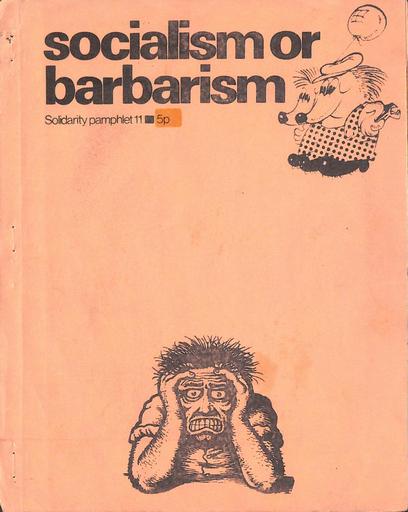
Solidarity
The libertarian socialist group Solidarity was set up in 1960 by former members of a British Trotskyist organisation, the Socialist Labour League. Under the intellectual influence of Chris Pallis (a.k.a. Maurcie Brinton), members adopted a political perspective close to that of Socialisme ou Barbarie in France. Solidarity adopted a critique of contemporary capitalism from this French sister organisation, which emphasised its increasingly bureaucratic qualities. Both groups also developed a libertarian socialist perspective, which became increasingly distant from Marxism without abandoning a comitment to revolutionary politics. MayDay Rooms holds an incomplete collection of Solidarity pamphlets and issues of the group’s eponymous journal.
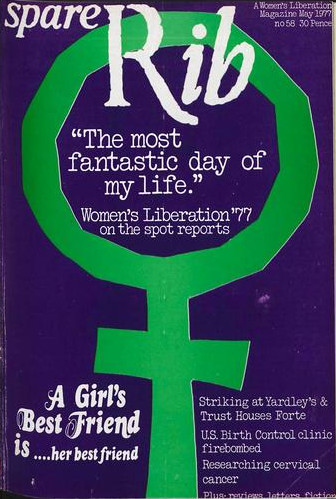
Spare Rib
Spare Rib was probably the most widely disseminated magazine of the Women’s Liberation Movement during the 1970s and 1980s. As part of a magazine culture that combined left-wing politics and wide dissemination of ideas (publications such as Spare Rib, Time Out and The Leveller had circulations in the tens of thousands), Spare Rib provided the leading feminist voice. The magazine was started in 1972 by Rosie Boycott and Marsha Rowe, although within a few years the editorial team had become a collective. Of particular interest are the letters pages, on which many of the biggest debates of the women’s liberation movement were played out. Our collection of issues is not a complete run and we are always looking for donors who want to help us complete our collection. Of particular interest are early issues.
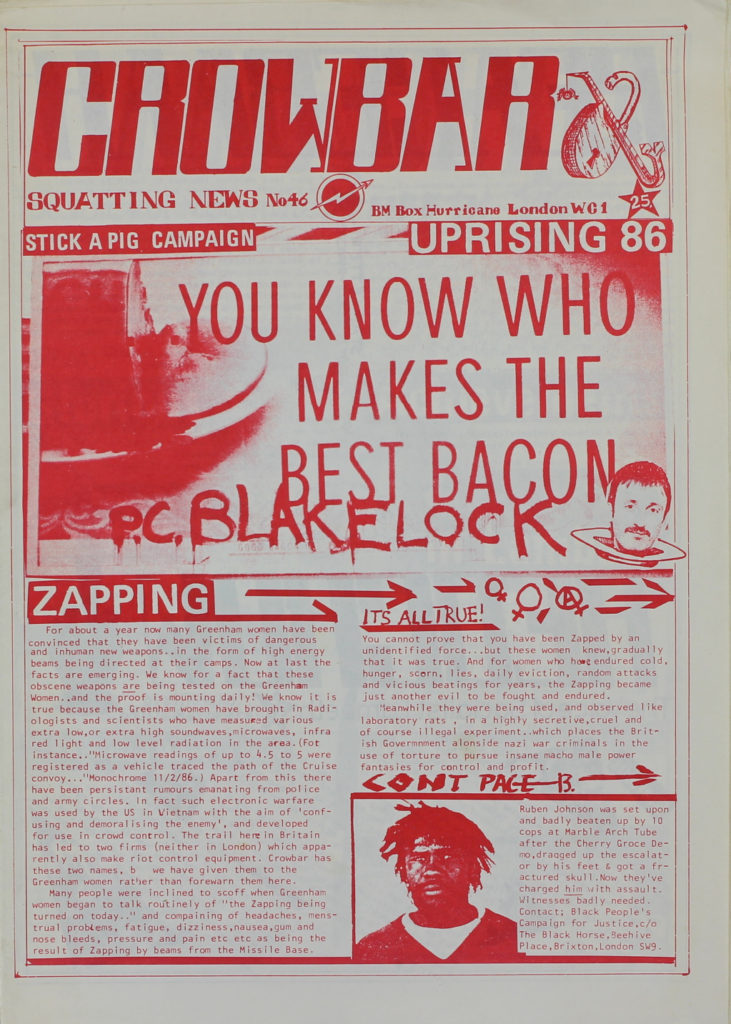
Squatting
Given impetus by the current wave of housing struggles, the sapping of space in metropolitan environments and the visit to MDR of squatting historian Alan Moore, MayDay Rooms have gathered a small collection of materials relating to the politics of squatting and occupations. Thanks to the 56a Duplicates Committee for providing MayDay Rooms with gems such as Crowbar and Squall and for practical guides such as the Squatters Handbook. This collection also contains information on the London Street Commune of the late 60s and has lately been supplemented by the ‘Options For Dealing With Squatting’ project.
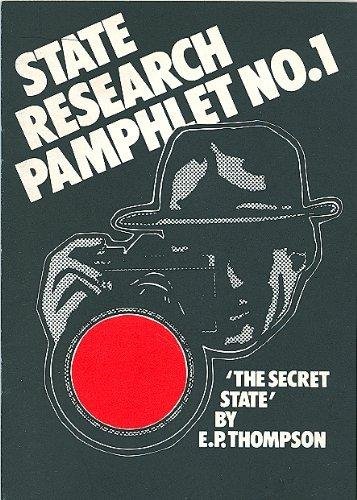
Statewatch
MayDay Rooms hosts a number of residents, such as the non-profit monitoring group Statewatch. This organisation’s history can be traced back to that of its predecessor State Research, which began to investigate security issues in 1977. From then until 1982 the organisation addressed a broad range of topics in a bi-monthly bulletin and a series of occasional pamphlets. These included civil liberties, policing, paramilitary policing, Special Branch, MI5, MI6, CIA, NATO, Gladio, official secrecy, public order, surveillance, racism, and right-wing groups and fronts. State Research also provided speakers for meetings and began to maintain a library of files and books. Statewatch was then set up in 1991 to work on civil liberties and the state, adopting an increasingly trans-European focus with the establishment of the EU the following year. This organisation also printed a bi-monthly bulletin from 1991 until 2014 and in 1999 the Statewatch website was launched, featuring daily news updates and analysis, as well as access to three online databases—all for free. The Statewatch library comprises 5300 books and pamphlets. Material held in it dates largely from the 1950s onwards, although some items are from as early as the 1930s. Statewatch is currently working to put the catalogue online and make the collection available to visitors.
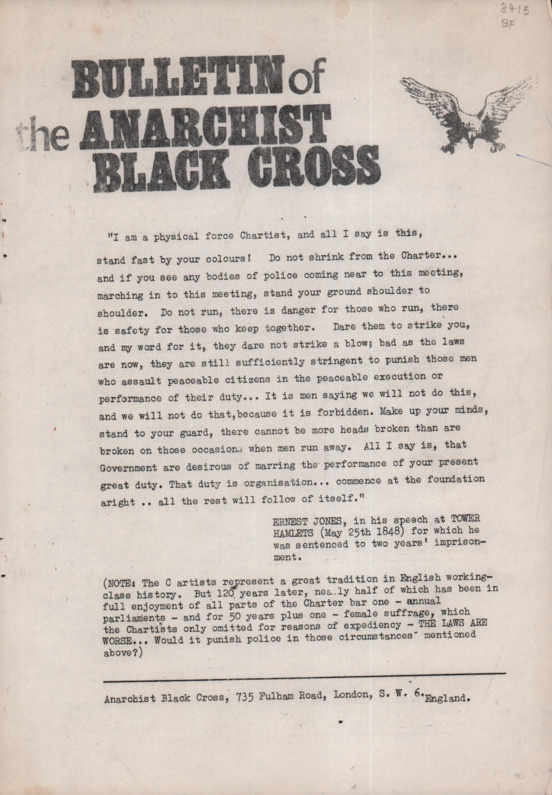
Stuart Christie Library
Several hundred books from Stuart Christie’s personal library. The collection includes a range of political and historical texts, with a special focus on politics and antifascism in Spain from the Spanish Civil War until the end of Franco. These books are now kept in the reading room.
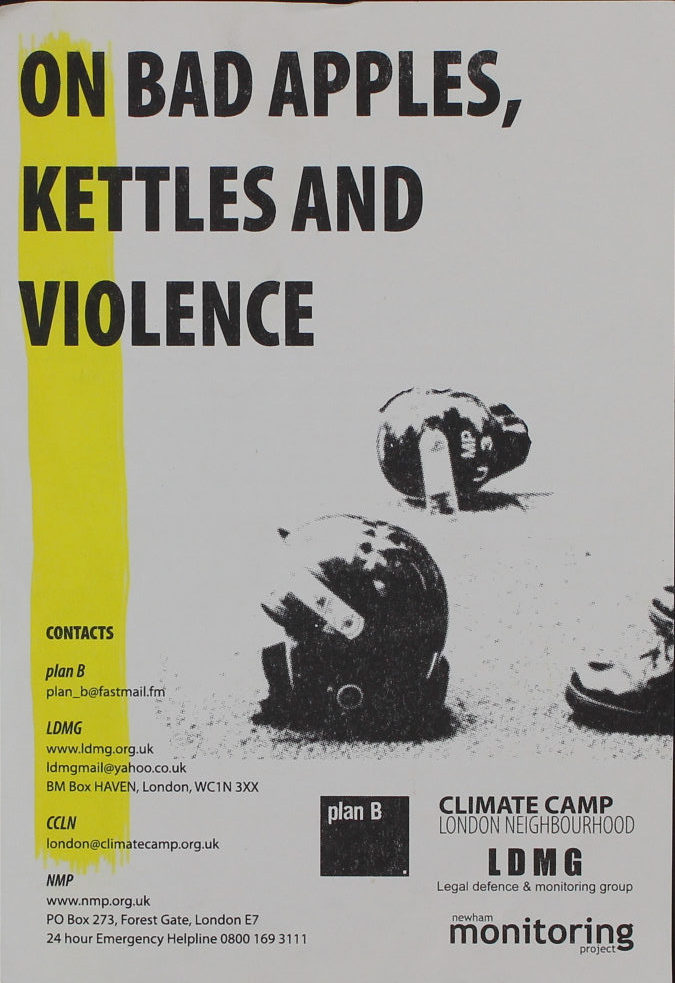
Student Movement 2010-2012
The most controversial policy of the first year of the coalition government was the raising of tuition fees to £9000 per year for undergraduate courses. Large numbers of protests, occupations, squats, marches, pickets, and clashes with the police took place to try to stop the bill passing. This archive includes a collection of materials, including newspapers, pamphlets, stickers, and other ephemera from the movement.
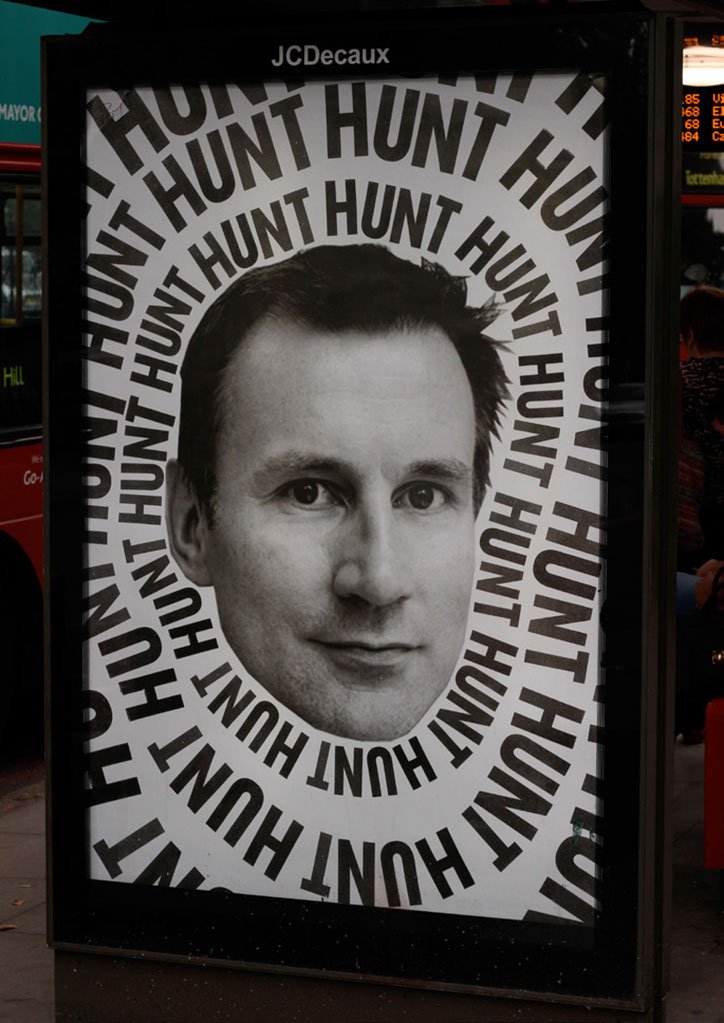
Subvertising
A number of large and beautiful political posters, most of which have been flyposted in the advertising spaces on bus stops and on the tubes. The collection charts political projects ranging from the Junior Doctor’s Strike to the arms industry to critiques of advertising. Also in the collection are a small number of documents on how to flypost, and pamphlets on undermining the advertising. These materials supplement an older collection of issues of adbusters from the 1990s, and work alongside other parts of our collection that chart the long history of détournement.
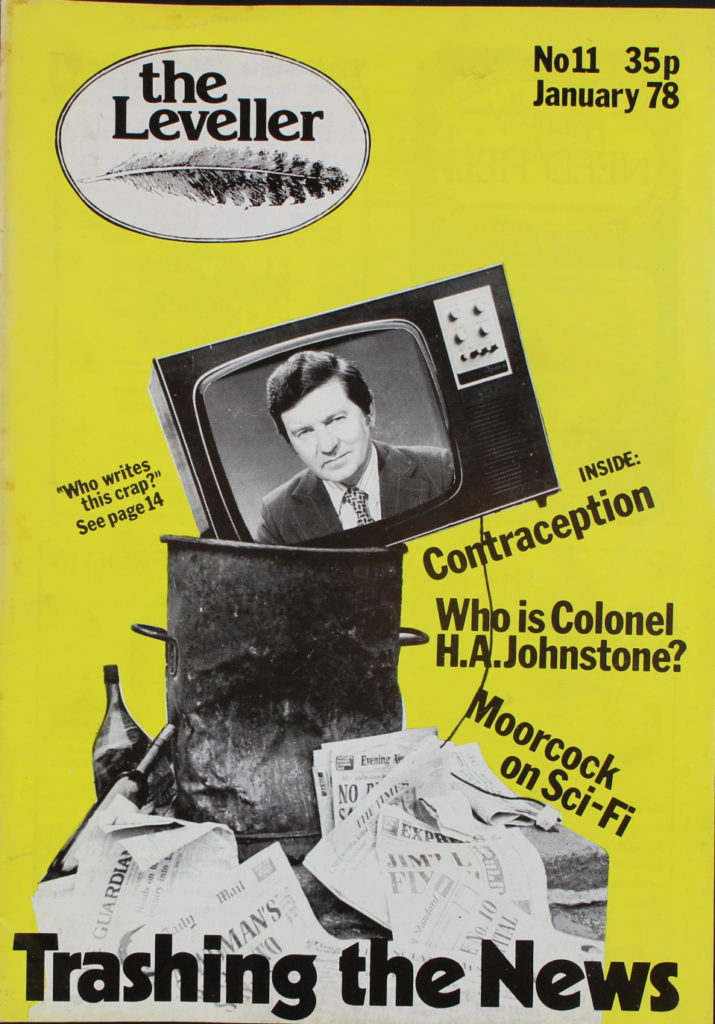
The Leveller Magazine
Between 1975 and 1985, The Leveller, an editor-less magazine, managed to sustain an independent left journalism that drew together professional and non-professionally identified writers into a collective. MayDay Rooms are grateful to Statewatch for depositing a near-to complete run of Levellers and to Tim Gospill, a former member of the magazine, for adding a short overview to the collection: “The Leveller – whose name came from an egalitarian 17th century Civil War group that agitated Cromwell’s republic from the ‘left’ – was firmly rooted in the British left and involved in all kinds of socialist, feminist, anarchist and anti-racist activity”. Tim’s assertions are well reflected in the eclectic and wide ranging pages of the magazine.
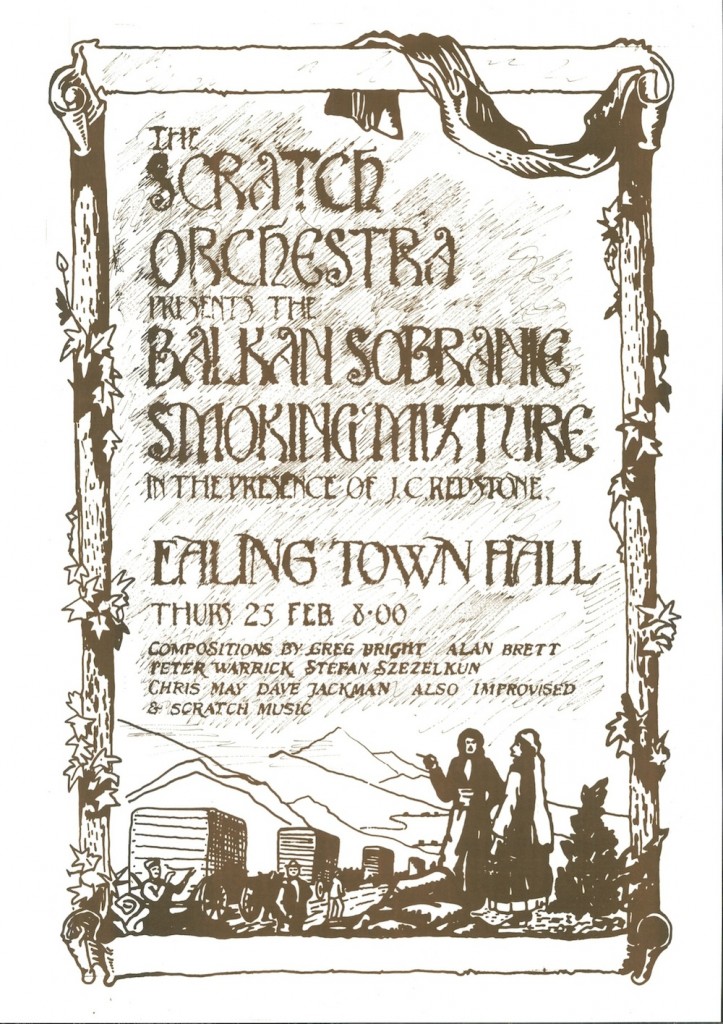
The Scratch Orchestra
The Scratch Orchestra grew out of a series of music composition classes held at London’s Morley College. The classes were instigated by Cornelius Cardew, Michael Parsons and Howard Skempton and were attended by avant-garde musicians and artists interested in exploring sound. From this, in July 1969, the Scratch Orchestra was formed; it was described, in its draft constitution, as “a large number of enthusiasts pooling their resources (not primarily material resources) and assembling for action (music making, performance, edification.)” The Scratch Orchestra, which drew together varying levels of musical ‘expertise’, performed its ‘music-from-scratch’, often based on written-instruction and graphic scores, in Town Halls, Village Halls, Universities, Youth Cubs, Parks and Theatres. The regularity of performance over its short life-span may well figure the Scratch Orchestra as a musical community; an intense experience of playing, travelling and living together. MayDay Rooms are grateful to Stefan Szczcelkun for depositing his Scratch Orchestra papers which includes documentation of the Richmond Journey and The Scratch Cottage as well as ephemera relating to the Slippery Merchants, a performance subgroup of the Scratch Orchestra that carried out “uninvited performative intrusions”. Stefan’s papers also provide materials relating to ongoing Scratch Orchestra gatherings, commemorations and concerts that have kept Scratch Music in the public eye.
Links
Resonance recording
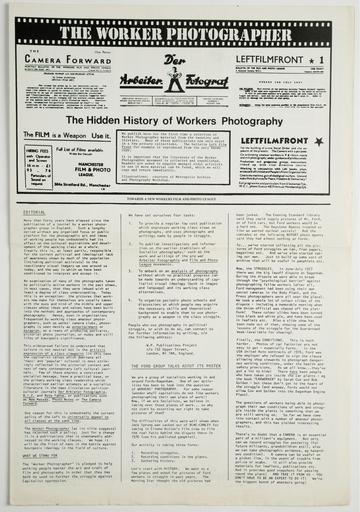
The Worker Photographer
The Worker Photographer was a project initiated by Terry Dennett in the late 1970s. It explicitly set out to provide a partisan representation of working-class perspectives through the medium of photography. This approach took inspiration from Communist agitprop of the interwar period, such as the work of Der Arbeiter Fotograf and the Film & Photo League. As well as the industrial struggles of workers at Ford, themes addressed included safety in the workplace and the depiction of class relations in the bourgeois press. MayDay Rooms holds a collection of materials produced by the Worker Photographer.
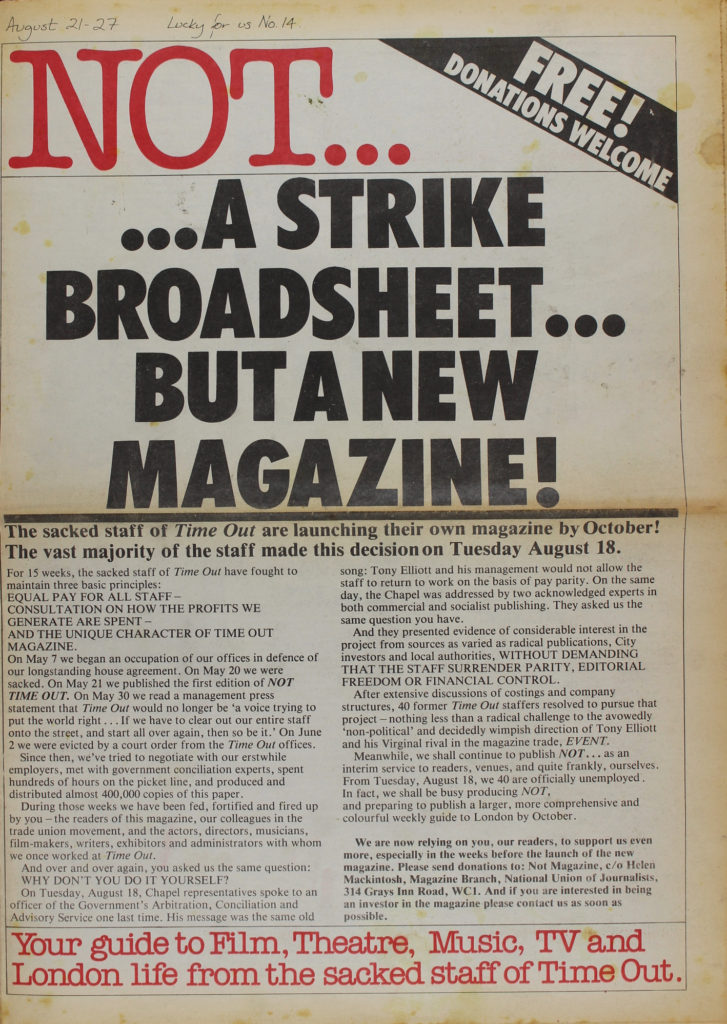
Time Out Strike
The Time Out Group, an international event-guide publishing business, started as a London listings magazine that emerged from the fertile alternative press scene of the late 1960s. Although the publication was initially founded and owned by one individual Tony Elliott, all staff received a flat rate of pay throughout the 1970s. In 1981 management attempted to impose new working practices and terms and conditions on the workforce, which included the introduction of a hierarchical pay structure. Workers responded by occupying the magazine’s offices and publishing a strike paper, not Time Out, which they then renamed not… in response to legal action. As well as reporting the dispute, the strike paper featured Time Out’s regular ‘Agitprop’ column of upcoming political events, a ‘Feedback’ section for messages of support (including advertisements that would have normally appeared in the magazine itself), Steve Bell cartoons and articles by striking journalists. While a fourteen-week strike failed to secure victory for the workforce, this dispute led directly to the launch of the alternative listings magazine for London City Limits, which continued publication for over a decade. MayDay Rooms holds a collection of material from the Time Out workers’ strike, including a full series of not Time Out/not…, leaflets and stickers.
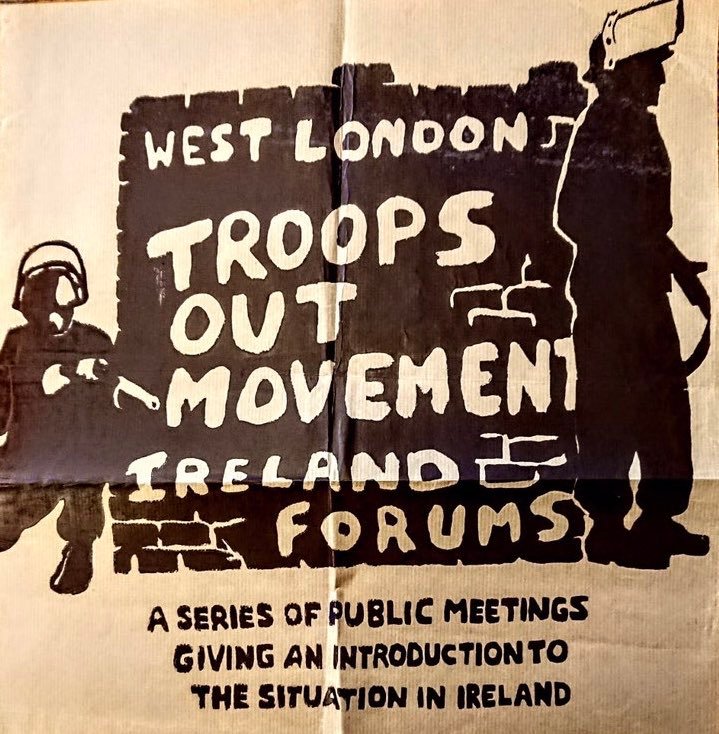
Troops Out Movement
The Troops Out Movement was formed in West London in 1973 by Irish solidarity activists. A campaigning organisation committed to bringing an end to British rule in the North of Ireland, Troops Out Movement has two aims: British Troops Out of Ireland and Self-determination for the Irish People as a Whole. Over the next few months we will be scanning material from Aly Renwick large personal collection around his involvement in the campaign to create a digital archive of TOM.
The Troops Out collection will build on our growing collection of Republican ephemera from the late 1960s and 1970s during the first years of the troubles. These include an extremely rare nearly complete run of the news sheet ‘Free Citizen’, and its subsequent incarnation ‘Unfree Citizen’. Also included in the collection are copies of the republican feminist journal ‘Banshee’, a number of copies of ‘An Phoblacht’, related ephemera including some materials from the Troops Out Movement, and a small number of posters
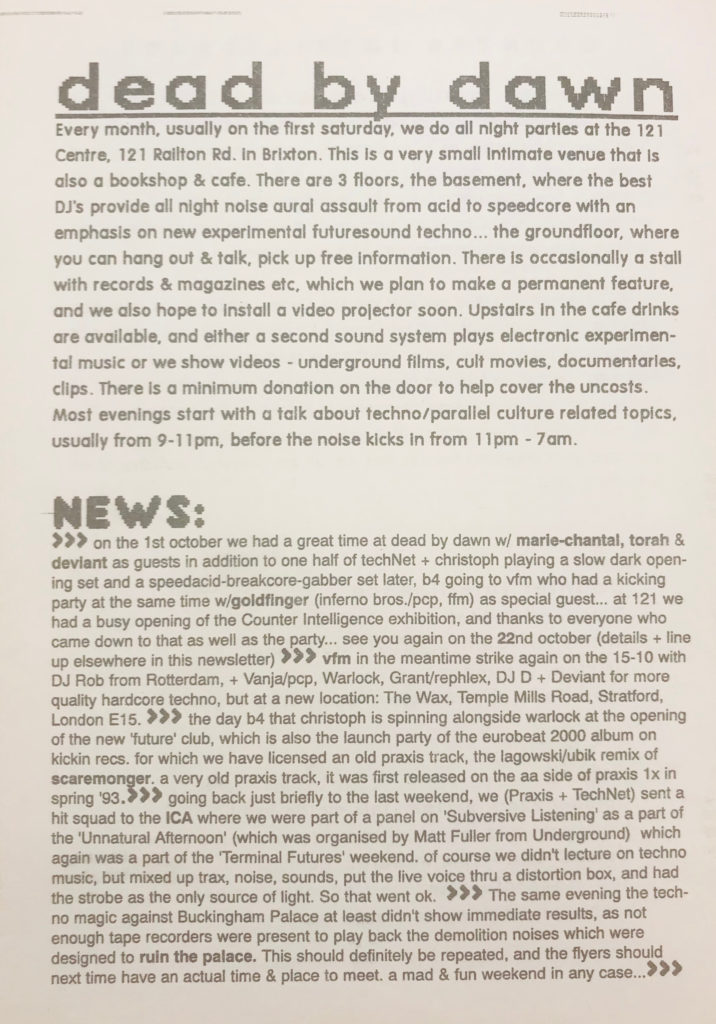
Underground Techno Scene
As a mass popular movement involving and uniting many subcultures the rave scene soon gained self confidence as a counter-culture and became subject to Governmental attack via the Criminal Justice Act (CJA). The ephemera deposited at MayDay rooms by William Shankly focuses on a period from 1993 and the Dead By Dawn/TechNet/Alien Undergound/Datacide assemblage centred on Brixton’s 121 Centre. Amongst the papers are zines from the period, flyers, news cuttings, correspondence and typescripts and drafts of TechNet writings. Some of these materials, especially those generated at the time of resistance to the CJA, were activated in October 2014 in association with History Is Made At Night at an event called ‘The Revolt of the Ravers’.
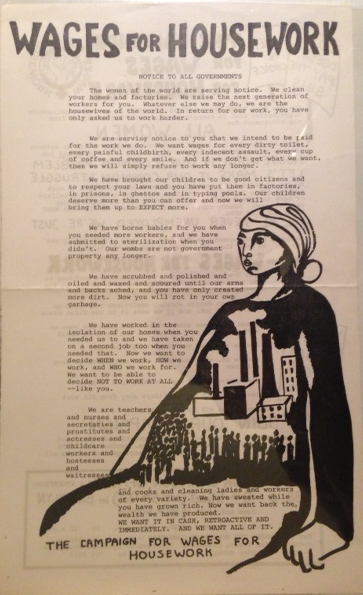
Wages for Housework (New York Committee)
The Wages for Housework campaign was launched in Padova at the International Feminist Conference of July 1972. Within two years it was holding its own international conference in Brooklyn, New York and issued a position statement: “Wages for Housework is the feminist perspective and therefore the class perspective.” Opening up both an exploration of the wage and presciently raising the issue of reproductive and affective labour, the Wages for Housework campaign maintained its momentum for the rest of the decade. The box of materials held by MayDay Rooms and kindly donated by Silvia Federici relate to the New York Wages For Housework collective and contain publications, posters, flyers, photographs, press cuttings and organisational documents. They span the period from the Padova Conference to the publication, in 1981, of the journal Tap Dance.
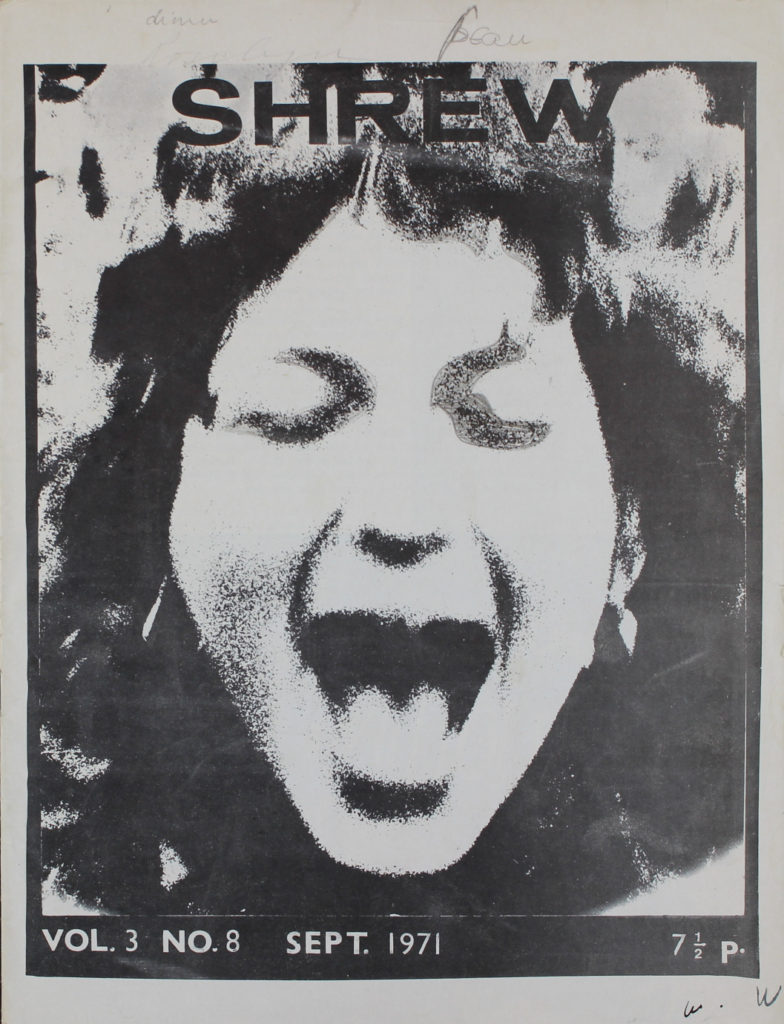
Workers Film Association
WFA, or Workers Film Association, was established in early 1975, when a group of like-minded working people formed an independent collective based from their house in North London. They were originally drawn together by an interest in Buddhism and progressive Left politics. WFA was one of three core groups that grew out of a practice of engaging in community and workplace activities and organisation, the other two being ‘Health for Struggle’ (a hospital worker-based study group) and Songs for Struggle, (a group which compiled a history of progressive songs, and performed publicly eg. supporting Grunwick strikers in Willesden). Study was a key part of their practice, as they felt it was critical to build up an awareness both of the progressive organisations with a practice in and around London, as well as a deeper understanding of the issues at the time. They subscribed to a range of publications (Spare Rib, Race Today, Race & Class), did weekly newspaper cuttings around those issues they were focusing on, and worked alongside or supported a range of community organisations eg. Indian Workers Association, Grunwick strikers, Eritrean Relief Association, the Photography Workshop, Kirkby Unemployed Centre, and many political organisations on the Left, eg. Black Workers League, etc.) WFA moved to Manchester in December 1979, and into a derelict 9000 square foot Edwardian warehouse (c. 1911). After significant rebuilding and refurbishment work carried out by members and supporters of the collective, they established WFA Media & Cultural Centre on 9 Lucy Street on the borders of Hulme, Old Trafford and Moss Side. The new premises in the North became the base for cultural programmes (eg.A Celebration of African Culture – 20 events of music, food, film and discussions over 10 weeks), WFA Film & Video Distribution, the ACTT (then BECTU) production unit, City & Guilds and other film and video training courses, a library and bookshop. Materials from the WFA Library were donated to MayDay Rooms after the formal closing down of WFA after 42 years of working as a ‘Society for the Benefit of the Community.’
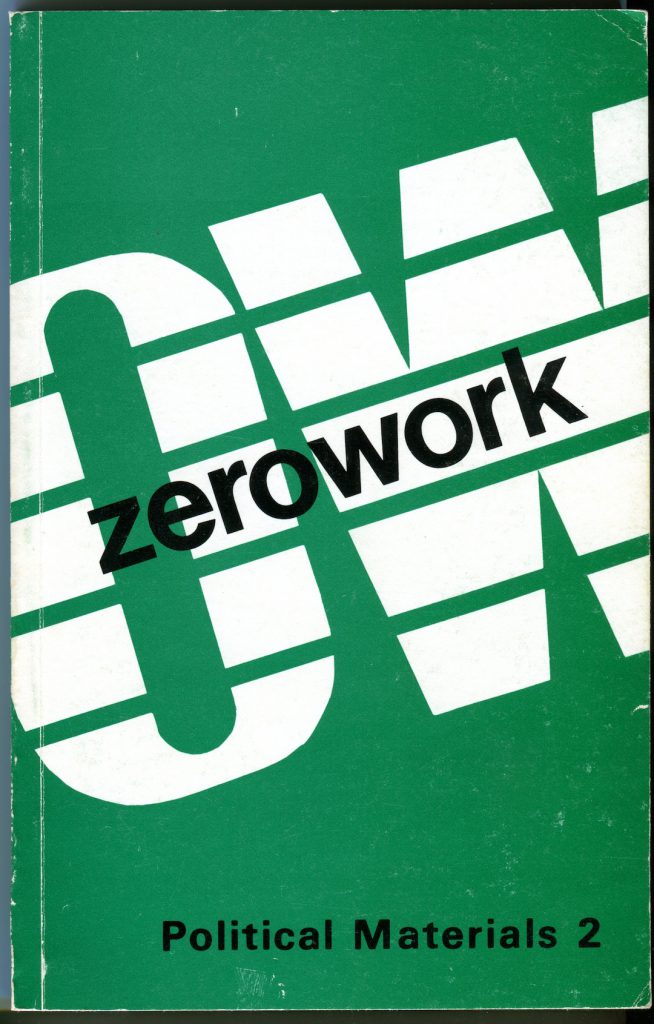
Zerowork
The Zerowork publishing group was formed in 1974 and could be said to have been informed by an early take up of Italian autonomist theory. Writing in the general introduction to the Zerowork website, Harry Cleaver, says: “Each of us had long been involved in various political struggles in the United States, in Canada, in England, and in Italy. Those struggles, as usual, always included debates over theoretical issues and those debates continued within our collective during the preparation of the first issue of the journal.” The first issue was published in upstate New York in 1975 and at the outset declared: “The present capitalist crisis has made the problem or working class revolutionary organization more urgent. But any discussion of revolutionary action must be based upon an analysis of the present relation of the working class to capital.” The analysis, carried out over two issues of the journal, has the working class rejection of wage labour as an underlying catalyst. A full run of the Zerowork journal as well as primary documents and pamphlets found their way to Mayday Rooms courtesy of Peter Linebaugh.
